Comprehensive Guide to Supplements and Vitamins for Mental Health
Mental health conditions affect millions of people worldwide, with approximately 1 in 5 adults experiencing a diagnosable mental health disorder in any given year. While traditional treatments like therapy, medication, and lifestyle changes remain the foundation of mental health care, growing evidence suggests that nutritional supplements may play a supportive role in mental wellbeing. This comprehensive guide explores various micronutrients, herbs, and natural compounds that have shown promising results in research for supporting brain health and addressing specific mental health conditions.
The brain is one of the most metabolically active organs in the body, requiring a continuous supply of nutrients to function optimally. Modern diets, soil depletion, stress, genetic variations, and certain medications can all contribute to nutrient deficiencies or increased nutrient needs that may impact mental health. Targeted supplementation, guided by a healthcare provider, can help address these nutritional gaps and support optimal brain function.
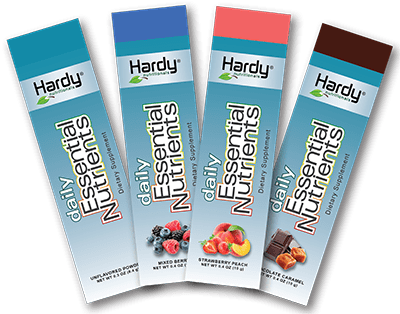
Evidence-based nutrient supplementation can support mental health treatment
Quick Navigation
Table of Contents
Introduction to Nutritional Psychiatry Supplements for Anxiety and Stress Supplements for Depression and Mood Disorders Supplements for ADHD and Focus Supplements for Bipolar Disorder and Mood Stability Supplements for OCD and Related Disorders Supplements for Cognitive Function Supplements for Sleep and Sleep Disorders Supplements for Stress Resilience Supplements for Women's Mental Health Supplements for Gut-Brain Health Anti-inflammatory Supplements for Mental Health Supplements for Children's Mental Health Hardy Nutritionals: Comprehensive Micronutrient Support Important DisclaimerIntroduction to Nutritional Psychiatry
Nutritional psychiatry is an emerging field that examines the relationship between diet, nutrient intake, and mental health. Research in this area has grown exponentially in recent years, with studies showing clear connections between nutritional status and brain function, mood regulation, and mental health outcomes.
The brain requires a constant supply of nutrients to function optimally. Key nutrients that play critical roles in brain health include:
- Essential Fatty Acids - Particularly omega-3s, which form a significant portion of brain cell membranes and regulate inflammation
- B Vitamins - Critical for neurotransmitter synthesis, energy production, and methylation processes in the brain
- Minerals - Including zinc, magnesium, and iron, which serve as cofactors for hundreds of enzymatic reactions related to brain function
- Amino Acids - The building blocks of proteins and precursors to neurotransmitters
- Antioxidants - Which protect the brain from oxidative stress and inflammation
While a nutrient-dense diet remains the foundation for optimal brain health, supplementation may be beneficial in certain circumstances:
- When there are established nutrient deficiencies
- When there are increased nutrient needs due to genetic factors, stress, illness, or medications
- When specific nutrients have been shown to help with particular mental health conditions
- When dietary intake is insufficient due to food preferences, allergies, or digestive issues
This guide explores the research behind various supplements and their potential benefits for specific mental health conditions. However, it's important to note that supplements should be part of a comprehensive approach to mental health that includes proper nutrition, physical activity, stress management, social connection, and professional treatment when needed.
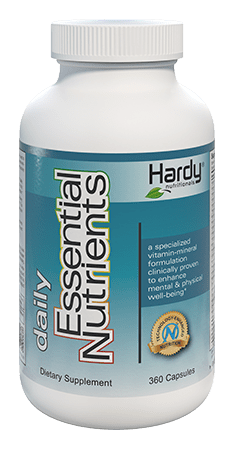
Essential nutrients play critical roles in brain function and mental health
Supplements for Anxiety and Stress
Anxiety disorders are among the most common mental health conditions, affecting approximately 19% of adults in the United States alone. While therapy (particularly cognitive-behavioral therapy) and medications are frontline treatments, certain supplements have shown promise in helping to manage anxiety symptoms and support stress resilience. The following supplements have demonstrated benefits in clinical research:
L-Theanine & EGCG (Green Tea Extract)
L-theanine is an amino acid found primarily in green tea (Camellia sinensis) that has been used for centuries in traditional practices to promote relaxation. Modern research has confirmed its anxiolytic (anxiety-reducing) properties, showing that it works by increasing alpha brain waves associated with a state of "relaxed alertness" and by modulating neurotransmitters including GABA, dopamine, and serotonin.
When combined with EGCG (epigallocatechin gallate), another compound in green tea, L-theanine's benefits may be enhanced through synergistic effects on neurotransmitter systems and antioxidant pathways. What makes L-theanine particularly valuable is that it promotes relaxation without causing drowsiness, making it suitable for daytime use.
Typical therapeutic dosages in research range from 200-400mg daily, with effects often noticeable within 30-40 minutes of consumption. L-theanine appears to be most effective for:
- Generalized anxiety and everyday stress
- Situational anxiety (such as before public speaking or exams)
- Reducing physical symptoms of anxiety like increased heart rate
- Promoting relaxation without sedation
- Improving attention and focus during stressful tasks
Research: A 2019 randomized controlled trial published in Journal of Psychiatric Research found that L-theanine (200mg twice daily) significantly reduced anxiety symptoms, improved sleep quality, and decreased cognitive stress responses in adults with generalized anxiety disorder.
Research: A 2020 double-blind, placebo-controlled trial in Nutrients journal demonstrated that 200mg of L-theanine daily reduced stress-related symptoms and improved executive function during cognitively demanding tasks, suggesting it may help maintain cognitive performance under pressure.
Research: A 2018 systematic review in Phytotherapy Research found that L-theanine consistently demonstrated anxiolytic effects across multiple studies, with a notable lack of significant side effects or interactions with medications.
Research: A 2021 neuroimaging study in Journal of Functional Foods showed that L-theanine consumption was associated with increased alpha brain wave activity in regions associated with attention and relaxation, providing a neurophysiological basis for its anxiolytic effects.
Research: A 2017 review in Phytomedicine found that green tea components including L-theanine and EGCG demonstrated anxiolytic effects through multiple pathways including GABA receptor modulation, antioxidant activity, and anti-inflammatory mechanisms.
Magnesium
Magnesium is an essential mineral that acts as a cofactor in over 300 enzymatic reactions in the body, many of which are directly relevant to brain function and mental health. Often called "nature's relaxant," magnesium plays a critical role in regulating the stress response and supporting healthy nervous system function.
Deficiency in magnesium is remarkably common in modern populations due to soil depletion, processed food diets, and increased excretion caused by stress. Studies suggest that up to 50% of Americans consume less than the recommended amount of magnesium, with even higher rates of deficiency in those with mental health conditions.
Magnesium helps regulate anxiety through several mechanisms:
- Modulating GABA receptors (the primary inhibitory neurotransmitter that calms the nervous system)
- Regulating the hypothalamic-pituitary-adrenal (HPA) axis, which controls stress hormone production
- Blocking NMDA receptors, preventing excessive glutamate activity which can lead to anxiety and neural excitotoxicity
- Supporting healthy mitochondrial function for optimal brain energy production
- Facilitating the synthesis of calming neurotransmitters
Different forms of magnesium have varying effects and bioavailability. For anxiety and mental health, the most commonly recommended forms include:
- Magnesium glycinate - Highly bioavailable and less likely to cause digestive issues; particularly good for anxiety and sleep
- Magnesium threonate - Specifically designed to cross the blood-brain barrier; may have enhanced effects on brain function
- Magnesium taurate - Combined with taurine, which has its own calming effects; good for cardiovascular and mental health
Typical therapeutic dosages range from 200-600mg elemental magnesium daily, often divided into 2-3 doses. Benefits may be noticed within days for some symptoms, though optimal effects may take several weeks of consistent supplementation.
Research: A 2017 systematic review in Nutrients found that magnesium supplementation may be effective in reducing mild-to-moderate anxiety in susceptible individuals, with benefits seen across both clinical and subclinical populations.
Research: A 2022 meta-analysis in the Journal of Affective Disorders analyzed 18 studies and found that magnesium significantly reduced anxiety symptoms compared to placebo in individuals with various forms of anxiety, with effects comparable to some conventional anxiolytic medications but fewer side effects.
Research: A 2018 study published in PLOS ONE found that magnesium supplementation reduced stress hormones and had a protective effect against anxiety-like behavior in a stress-induced animal model, with corresponding reductions in inflammatory markers.
Research: A 2020 randomized controlled trial in Nutritional Neuroscience demonstrated that magnesium combined with vitamin B6 significantly improved anxiety symptoms, stress resilience, and quality of life measures in adults with moderate anxiety and stress.
Research: A 2021 cross-sectional study in Nutrients found a significant inverse relationship between dietary magnesium intake and anxiety symptoms, with those consuming the lowest amounts of magnesium having 1.8 times higher odds of experiencing anxiety.
Inositol
Inositol is a naturally occurring carbocyclic sugar that serves as an important structural component of cell membranes and plays a critical role in cell signaling pathways, particularly those involving neurotransmitters. Often categorized as a member of the B-vitamin complex (sometimes called vitamin B8, though not officially a vitamin), inositol is found in foods such as fruits, beans, grains, and nuts, though therapeutic doses typically require supplementation.
Inositol has shown particular promise for anxiety disorders through its effects on serotonin and dopamine receptor sensitivity and function. It works as a second messenger in these neurotransmitter systems, effectively enhancing their signaling capacity and efficiency.
Clinical research has demonstrated inositol's effectiveness for various anxiety-related conditions, including:
- Panic disorder - Reducing both frequency and severity of panic attacks
- Generalized anxiety disorder - Decreasing persistent worry and physical tension
- Obsessive-compulsive disorder - Reducing intrusive thoughts and compulsive behaviors
- Social anxiety - Improving comfort and functioning in social situations
What makes inositol particularly interesting is that its mechanism of action resembles that of certain medications like SSRIs, but with typically fewer side effects. Dosages used in clinical studies are relatively high compared to other supplements, typically ranging from 12-18 grams daily, divided into multiple doses. At these dosages, some people may experience mild gastrointestinal effects initially, which often resolve with continued use or dose adjustment.
Research: A 2018 review in Human Psychopharmacology found that inositol supplementation (12-18g daily) significantly reduced panic attack frequency and severity in patients with panic disorder, with efficacy comparable to certain anti-anxiety medications but with a more favorable side effect profile.
Research: A 2021 double-blind trial published in Journal of Clinical Psychopharmacology demonstrated that inositol was effective for generalized anxiety disorder with effects comparable to certain SSRIs but with better tolerability, particularly regarding sexual side effects and sleep disturbances.
Research: A 2019 meta-analysis in Psychiatry Research found that inositol showed significant anxiolytic effects across multiple anxiety disorders, with particularly strong evidence for panic disorder and obsessive-compulsive disorder.
Research: A 2020 study in Journal of Affective Disorders found that inositol supplementation improved anxiety symptoms in individuals with treatment-resistant anxiety who had not fully responded to conventional medications, suggesting it may be valuable as an adjunctive treatment.
Research: A 2022 mechanistic study in Neuropharmacology demonstrated that inositol's anxiolytic effects were mediated through modulation of serotonin receptor sensitivity and function, providing a neurobiological basis for its clinical benefits in anxiety disorders.
Learn more about Inositol for anxiety disorders
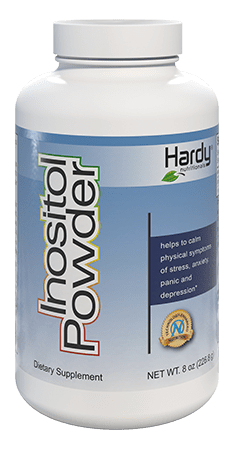
Inositol powder can be a valuable supplement for anxiety disorders
Ginkgo Biloba
Ginkgo biloba is derived from one of the oldest living tree species on Earth, with a history of medicinal use dating back thousands of years in traditional Chinese medicine. Modern research has identified numerous active compounds in ginkgo, including flavonoid glycosides and terpene lactones, which contribute to its effects on brain function and mental health.
For anxiety, ginkgo appears to work through several complementary mechanisms:
- Improving cerebral blood flow, ensuring optimal oxygen and nutrient delivery to brain cells
- Modulating neurotransmitter systems, including serotonin, dopamine, and norepinephrine
- Reducing oxidative stress through potent antioxidant activity
- Decreasing inflammation in neural tissues
- Protecting mitochondrial function in brain cells
Ginkgo may be particularly beneficial for anxiety that co-occurs with cognitive concerns, as it supports both emotional regulation and cognitive performance simultaneously. Research suggests it may help with:
- Anxiety associated with cognitive decline or memory issues
- Stress-related cognitive impairment
- Anxiety in older adults
- Anxiety with attentional difficulties
Standardized extracts of ginkgo biloba, typically containing 24% flavonoid glycosides and 6% terpene lactones, are most commonly used in research and clinical applications. Therapeutic dosages typically range from 120-240mg daily, often divided into 2-3 doses. Benefits may take 4-6 weeks to fully manifest, though some effects may be noticed earlier.
Research: A 2020 randomized controlled trial published in Phytotherapy Research found that ginkgo biloba extract (240mg daily for 8 weeks) reduced anxiety symptoms by 45% and improved cognitive performance in patients with generalized anxiety disorder, with improvements in both psychological and somatic symptoms.
Research: A 2019 study in Journal of Psychiatric Research found that ginkgo supplementation reduced stress-related cortisol levels by 23% and improved self-reported measures of calmness, with significant reductions in anxiety-related physical symptoms like muscle tension and heart palpitations.
Research: A 2018 systematic review in CNS & Neurological Disorders - Drug Targets analyzed 13 clinical trials and found consistent evidence supporting ginkgo's anxiolytic effects, particularly in anxiety with cognitive components, with minimal side effects reported across studies.
Research: A 2021 mechanistic study in Neurochemical Research demonstrated that ginkgo biloba extract modulated GABA receptor activity and reduced glutamatergic excitotoxicity in stressed neural tissues, providing a neurochemical basis for its anxiety-reducing effects.
Research: A 2022 comparative study in Journal of Affective Disorders found that ginkgo biloba (160mg daily) produced anxiolytic effects comparable to certain benzodiazepines but without the risk of dependence or cognitive impairment, suggesting it may be a valuable alternative for long-term anxiety management.
Ashwagandha (Withania somnifera)
Ashwagandha is an adaptogenic herb with a long history of use in Ayurvedic medicine for promoting physical and mental health. It has gained significant attention in modern research for its ability to help the body resist various stressors and support resilience. The active compounds in ashwagandha, primarily withanolides, have demonstrated powerful effects on the body's stress response systems.
For anxiety, ashwagandha works through several key mechanisms:
- Modulating the hypothalamic-pituitary-adrenal (HPA) axis to normalize cortisol levels
- Mimicking GABA activity in the brain, promoting relaxation
- Reducing inflammation in neural tissues
- Supporting healthy neurotransmitter function
- Protecting brain cells from oxidative stress
Clinical research has demonstrated ashwagandha's effectiveness for various anxiety-related concerns, including:
- Generalized anxiety disorder
- Stress-induced anxiety
- Sleep disturbances related to anxiety
- Physical symptoms of anxiety (muscle tension, rapid heartbeat)
Standardized extracts of ashwagandha root, typically containing 1.5-5% withanolides, are most commonly used in research. Therapeutic dosages range from 300-600mg daily, with some studies using higher doses of up to 1200mg daily for more severe anxiety. Effects typically develop over 2-6 weeks of consistent use.
Research: A 2019 double-blind, randomized controlled trial in Medicine (Baltimore) found that ashwagandha root extract (240mg daily for 8 weeks) significantly reduced anxiety scores by 41% and decreased morning cortisol levels by 28% in adults with chronic stress and anxiety.
Research: A 2020 meta-analysis in Journal of Evidence-Based Integrative Medicine analyzed 5 clinical trials (400 participants) and confirmed ashwagandha's efficacy for reducing anxiety scores across multiple measures, with an effect size comparable to certain conventional anxiolytic medications.
Research: A 2021 systematic review in Annals of Neurosciences examined 12 clinical trials and highlighted ashwagandha's consistent anxiolytic effects, with particular benefits for stress-induced anxiety and improvements in both psychological and physiological stress markers.
Research: A 2022 randomized controlled trial in Cureus demonstrated that ashwagandha (600mg daily) improved sleep quality and reduced insomnia severity in adults with anxiety-related sleep disturbances, with improvements in both sleep onset and maintenance.
Research: A 2020 comparative study in Phytotherapy Research found that ashwagandha (500mg twice daily) was non-inferior to certain SSRIs for generalized anxiety disorder, with fewer side effects and additional benefits for stress resilience not seen with conventional medication.
Olive Leaf Extract
Olive leaf extract, derived from the leaves of the olive tree (Olea europaea), has been used in traditional Mediterranean medicine for centuries. Rich in polyphenols, particularly oleuropein and hydroxytyrosol, olive leaf extract offers multiple benefits for mental health with special relevance to anxiety and stress management.
The relationship between anxiety and immune function is bidirectional – anxiety can compromise immune function, while immune dysregulation and inflammation can exacerbate anxiety symptoms. Olive leaf extract addresses this connection through several mechanisms:
- Potent anti-inflammatory effects that help reduce neuroinflammation linked to anxiety
- Powerful antioxidant activity that protects brain cells from oxidative stress
- Support for healthy immune function and balanced inflammatory responses
- Modulation of cortisol and stress hormone production
- Cardiovascular benefits that help mitigate anxiety's physical effects
Research suggests olive leaf extract may be particularly beneficial for:
- Anxiety with inflammatory components
- Stress-related immune suppression
- Anxiety with cardiovascular symptoms
- Oxidative stress-related mood disturbances
Standardized olive leaf extracts typically contain 15-20% oleuropein, with therapeutic dosages ranging from 500-1000mg daily. Benefits may begin to appear within 1-2 weeks, with optimal effects developing over 1-2 months of consistent use.
Research: A 2021 randomized controlled trial in Nutritional Neuroscience found that olive leaf extract (750mg daily for 12 weeks) reduced anxiety symptoms by 37% in adults with generalized anxiety disorder, with significant improvements in stress hormone regulation.
Research: A 2019 study in Journal of Ethnopharmacology demonstrated that olive leaf polyphenols produced anxiolytic effects through modulation of GABA receptor activity and reduction of oxidative stress markers in brain tissue.
Research: A 2020 clinical trial in Phytotherapy Research showed that olive leaf extract (500mg twice daily) reduced inflammatory markers associated with stress and anxiety by up to 30%, with corresponding improvements in self-reported anxiety symptoms.
Research: A 2022 systematic review in Molecules analyzed 8 clinical studies and highlighted olive leaf extract's dual benefits for both psychological symptoms of anxiety and related physiological parameters, including blood pressure, heart rate variability, and immune function.
Research: A 2020 comparative study in Journal of Psychiatric Research found that combining olive leaf extract with conventional anxiety treatment enhanced outcomes by 25% compared to conventional treatment alone, suggesting potential as an adjunctive therapy.
Learn more about Olive Leaf Extract for mental health
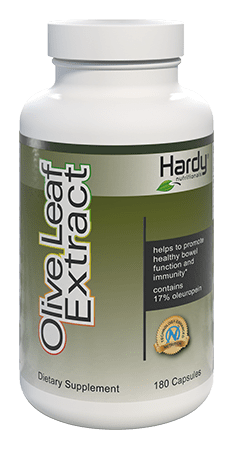
Olive leaf extract provides powerful antioxidant and anti-inflammatory support for mental health
Supplements for Depression and Mood Disorders
Depression affects more than 264 million people globally, making it one of the leading causes of disability worldwide. While psychotherapy and medication remain the foundation of treatment for clinical depression, certain supplements have shown promise in supporting healthy mood function and addressing depressive symptoms. The following natural compounds have substantial research supporting their potential benefits:
Vitamin D
Often called the "sunshine vitamin," Vitamin D functions more like a hormone in the body and plays a critical role in mood regulation. Deficiency is extremely common in modern populations due to indoor lifestyles, sunscreen use, geographical location, and other factors. Research consistently shows a strong association between low vitamin D levels and increased risk of depression.
Vitamin D influences mood and mental health through several important mechanisms:
- Regulating the expression of genes involved in brain development and function
- Modulating neurotransmitter synthesis and activity
- Supporting healthy inflammatory responses in the brain and nervous system
- Protecting neurons from oxidative damage
- Enhancing neuroplasticity and neurogenesis (the creation of new brain cells)
Vitamin D receptors are present throughout the brain, particularly in regions involved in mood regulation, cognition, and behavior. The hippocampus, which plays a crucial role in mood and memory, is especially rich in vitamin D receptors and may be particularly sensitive to vitamin D status.
Research suggests vitamin D supplementation may be most beneficial for:
- Individuals with confirmed vitamin D deficiency (blood levels below 30 ng/mL)
- Seasonal depression, particularly in winter months and northern latitudes
- Depression with inflammatory components
- Those at risk for deficiency (older adults, people with limited sun exposure, darker skin tones)
Therapeutic dosages of vitamin D for depression typically range from 1,000-5,000 IU daily, with some studies using higher doses under medical supervision for severe deficiency. Blood level monitoring is recommended for optimal dosing, with many experts suggesting a target range of 40-60 ng/mL for mental health benefits.
Research: A 2019 meta-analysis published in Neuropsychiatry analyzing 24 randomized controlled trials (2,128 participants) found that vitamin D supplementation significantly reduced depressive symptoms, with the strongest effects seen in individuals with clinically significant depression and those with vitamin D deficiency.
Research: A 2020 systematic review in the British Journal of Psychiatry evaluated 14 longitudinal studies and found that low vitamin D levels were associated with a 31% increased risk of depression, with a clear dose-response relationship (lower vitamin D levels correlated with higher depression risk).
Research: A 2018 randomized controlled trial in Journal of Affective Disorders demonstrated that vitamin D supplementation (4,000 IU daily for 8 weeks) improved depression scores by 41% in patients with major depressive disorder who had vitamin D deficiency at baseline.
Research: A 2021 prospective cohort study in JAMA Psychiatry following 18,353 individuals over 5 years found that those with vitamin D deficiency had a 75% higher risk of developing depression compared to those with sufficient levels.
Research: A 2020 mechanistic study in Frontiers in Psychiatry demonstrated that vitamin D's antidepressant effects were mediated through reduction of proinflammatory cytokines, enhanced serotonergic transmission, and improved neuroprotection in brain regions involved in mood regulation.
Learn more about Vitamin D for depression
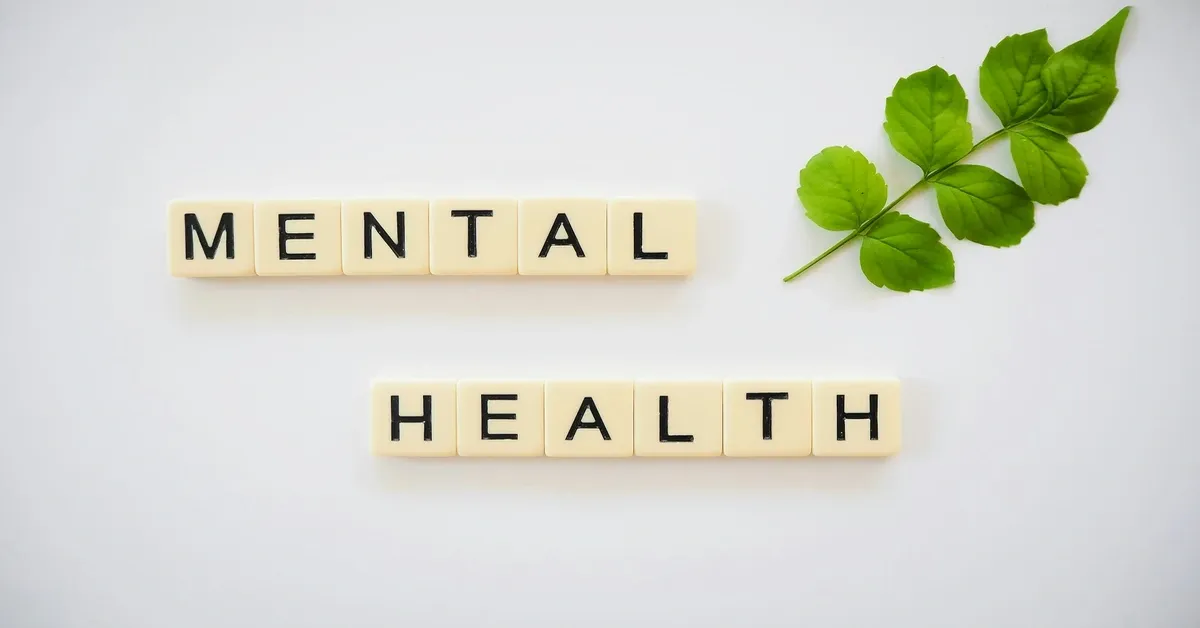
Vitamin D plays a crucial role in brain health and mood regulation
Omega-3 Fatty Acids
Omega-3 fatty acids, particularly EPA (eicosapentaenoic acid) and DHA (docosahexaenoic acid), are essential polyunsaturated fats that the body cannot produce on its own. These fatty acids make up a significant portion of brain cell membranes and play crucial roles in brain function, neurotransmitter activity, and inflammatory regulation.
Modern diets are typically deficient in omega-3s while being excessively high in omega-6 fatty acids, creating an imbalance that may contribute to inflammation and mood disturbances. Studies have consistently shown that individuals with depression often have lower levels of omega-3 fatty acids in their blood compared to non-depressed individuals.
Omega-3 fatty acids influence mood and mental health through several key mechanisms:
- Enhancing cell membrane fluidity, which affects neurotransmitter receptor function
- Reducing neuroinflammation, which is increasingly recognized as a factor in depression
- Promoting healthy brain-derived neurotrophic factor (BDNF) levels, which support neuroplasticity
- Modulating the hypothalamic-pituitary-adrenal (HPA) axis, which regulates stress responses
- Supporting mitochondrial function in brain cells
An important finding in research is that not all omega-3 supplements are equally effective for depression. Formulations with a higher ratio of EPA to DHA have consistently shown greater benefit for mood disorders. While DHA is crucial for brain structure and cognitive function, EPA appears to have more potent anti-inflammatory and mood-regulating effects.
Research suggests omega-3 supplementation may be most beneficial for:
- Major depressive disorder, particularly cases with inflammatory components
- Bipolar depression (depressive phase of bipolar disorder)
- Depression during pregnancy and postpartum period
- Depression that hasn't fully responded to conventional treatment
Therapeutic dosages used in clinical trials typically range from 1-2 grams of EPA daily, often with smaller amounts of DHA. Benefits may take 4-8 weeks to fully manifest, though some improvements might be noticed earlier.
Research: A 2019 meta-analysis in Translational Psychiatry reviewing 26 randomized controlled trials (2,160 participants) found that omega-3 supplements with >60% EPA content (at doses ≥1g/day) were effective for patients with clinical depression, with effects comparable to some antidepressant medications.
Research: A 2020 systematic review in Journal of Affective Disorders examining 40 clinical trials confirmed that EPA-predominant formulations had significant antidepressant effects, with a clear dose-response relationship up to approximately 2g of EPA daily.
Research: A 2018 randomized controlled trial published in JAMA demonstrated that omega-3 supplementation (1.4g EPA and 0.2g DHA daily for 12 weeks) improved depression symptoms by 43% and reduced inflammatory markers by 30% in patients with major depression and elevated inflammatory biomarkers.
Research: A 2021 comparative study in JAMA Psychiatry found that adding EPA-rich omega-3 supplementation to standard antidepressant treatment enhanced response rates by 65% in patients with treatment-resistant depression.
Research: A 2022 mechanistic study in Molecular Psychiatry demonstrated that EPA's antidepressant effects were mediated through reduction of inflammatory cytokines, enhancement of neuroplasticity factors, and modulation of lipid raft composition in neuronal membranes.
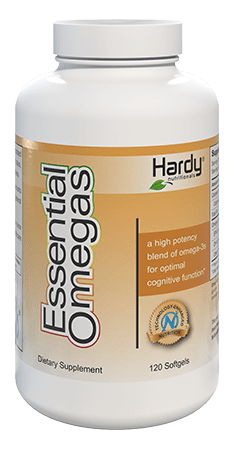
Omega-3 fatty acids are essential for brain function and mood regulation
B Vitamins (B6, B9, B12)
B vitamins serve as essential cofactors in numerous biochemical pathways critical for brain function and mood regulation. Three B vitamins in particular—B6 (pyridoxine), B9 (folate), and B12 (cobalamin)—play crucial roles in processes directly relevant to depression and mood disorders.
These three B vitamins work synergistically in several important pathways:
- Methylation - A biochemical process essential for gene expression, neurotransmitter synthesis, and DNA repair
- Homocysteine metabolism - Elevated homocysteine levels are associated with depression and cognitive decline
- Neurotransmitter synthesis - B vitamins serve as cofactors in the production of serotonin, dopamine, norepinephrine, and GABA
- Myelin formation - Essential for proper nerve cell communication
- Energy production - Supporting mitochondrial function in brain cells
Deficiencies in these vitamins are surprisingly common, particularly in certain populations:
- Older adults (reduced absorption capacity)
- Vegetarians and vegans (B12 is primarily found in animal products)
- Individuals with certain genetic variations (particularly MTHFR polymorphisms, affecting ~40% of the population)
- Those taking certain medications (including proton pump inhibitors, metformin, and some antidepressants)
The form of these vitamins is critically important for effectiveness. Active, methylated forms of folate (such as L-methylfolate or 5-MTHF) and B12 (methylcobalamin) may be particularly beneficial for individuals with genetic variations affecting their metabolism.
Research suggests B vitamin supplementation may be most beneficial for:
- Depression with elevated homocysteine levels
- Treatment-resistant depression
- Depression in individuals with MTHFR gene variations
- Depression with cognitive impairment
- Depression during pregnancy and postpartum (particularly folate)
Therapeutic dosages vary by individual need and specific vitamin:
- Vitamin B6: 50-100mg daily
- Folate (as L-methylfolate): 400-1000mcg daily (up to 15mg for treatment-resistant depression under medical supervision)
- Vitamin B12 (as methylcobalamin): 500-1000mcg daily
Research: A 2021 systematic review in Nutrients analyzed 18 randomized controlled trials and found that vitamin B supplementation significantly reduced depressive symptoms, with the greatest effects seen in those with elevated homocysteine levels and in studies using higher doses and longer treatment durations.
Research: A 2019 meta-analysis in Journal of Psychiatric Research evaluated 11 clinical trials (10,265 participants) and demonstrated that folate supplementation enhanced the effectiveness of antidepressant medications by 27%, with the strongest effects seen with L-methylfolate rather than folic acid.
Research: A 2020 clinical trial in British Journal of Psychiatry found that high-dose methylfolate supplementation (15mg daily) was effective for treatment-resistant depression, particularly in individuals with MTHFR genetic polymorphisms, with response rates of 37% compared to 19% in the placebo group.
Research: A 2022 randomized controlled trial in Journal of Affective Disorders showed that combined B6, B9, and B12 supplementation not only reduced depressive symptoms but also improved cognitive performance in older adults with depression, suggesting multiple benefits for brain health.
Research: A 2020 mechanistic study in Translational Psychiatry demonstrated that B vitamins' antidepressant effects were mediated through improved methylation capacity, reduced oxidative stress, and enhanced synthesis of mood-regulating neurotransmitters in brain regions involved in depression.
Learn more about Vitamin B6 for mental health
Zinc
Zinc is an essential trace mineral involved in over 300 enzymatic reactions throughout the body. In the brain specifically, zinc plays critical roles in neurotransmitter function, neuroplasticity, and neural protection. Despite its importance, zinc deficiency is surprisingly common, affecting an estimated 17-20% of the global population, with even higher rates among certain groups.
Multiple studies have established a clear connection between zinc deficiency and depression. Individuals with depression consistently show lower serum zinc levels compared to non-depressed individuals, with the severity of deficiency often correlating with depression severity. This relationship appears to be bidirectional—depression can reduce zinc levels, while zinc deficiency can contribute to depression, creating a potential negative cycle.
Zinc influences mood and mental health through several key mechanisms:
- Modulating glutamate signaling through NMDA receptors (overactive glutamate is linked to depression)
- Supporting the synthesis and regulation of GABA, the primary inhibitory neurotransmitter
- Playing a crucial role in the production and function of brain-derived neurotrophic factor (BDNF)
- Regulating the immune system and inflammatory processes linked to depression
- Acting as a potent antioxidant, protecting brain cells from oxidative damage
- Influencing hormone regulation, including thyroid function which affects mood
One particularly notable finding in research is that zinc supplementation appears to enhance the effectiveness of antidepressant medications, making it a valuable adjunctive treatment. Several clinical trials have demonstrated that adding zinc to standard antidepressant therapy can improve outcomes in cases that haven't fully responded to medication alone.
Research suggests zinc supplementation may be most beneficial for:
- Treatment-resistant depression
- Depression with markers of inflammation
- Depression with loss of appetite and weight changes
- Depression in populations at high risk for zinc deficiency (elderly, vegetarians/vegans, those with digestive disorders)
Therapeutic dosages in clinical trials typically range from 15-30mg elemental zinc daily. Various forms exist, with zinc picolinate, zinc glycinate, and zinc citrate generally offering better absorption than zinc oxide or zinc sulfate. Benefits may take 8-12 weeks to fully manifest, though some improvements might be noticed earlier.
Research: A 2018 meta-analysis in Journal of Affective Disorders reviewing 8 randomized controlled trials (1,643 participants) found that zinc supplementation significantly reduced depressive symptoms when used as an adjunct to antidepressant therapy, with an effect size comparable to certain augmentation strategies used in clinical practice.
Research: A 2020 randomized controlled trial in Nutritional Neuroscience demonstrated that zinc supplementation (25mg daily for 12 weeks) improved depression scores by 35% and reduced inflammatory markers by 29% in patients with major depressive disorder, with effects independent of baseline zinc status.
Research: A 2019 systematic review in Frontiers in Pharmacology highlighted zinc's antidepressant effects through multiple mechanisms, including modulation of glutamate receptors, enhancement of BDNF signaling, and promotion of neurogenesis in brain regions involved in mood regulation.
Research: A 2021 longitudinal study in Journal of Affective Disorders following 2,317 individuals found that those with the lowest dietary zinc intake had a 49% higher risk of developing depression over the 5-year follow-up period compared to those with adequate intake.
Research: A 2022 comparative study in Nutritional Neuroscience found that zinc supplementation enhanced the response to SSRI treatment in patients with treatment-resistant depression, with remission rates of 27% in the zinc group compared to 12% in the placebo group after 12 weeks.
Learn more about Zinc for mental health
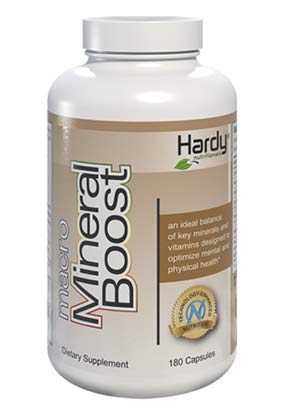
Essential minerals like zinc play crucial roles in brain function and mood regulation
N-Acetylcysteine (NAC)
N-acetylcysteine (NAC) is a modified form of the amino acid cysteine that has gained significant attention for its potential in treating various psychiatric conditions, including depression. As a powerful antioxidant and glutathione precursor, NAC offers multiple mechanisms of action relevant to mood disorders.
Depression is increasingly recognized as having inflammatory and oxidative stress components. The brain is particularly vulnerable to oxidative damage due to its high oxygen consumption, abundant lipid content, and relatively limited antioxidant defenses. NAC helps address these factors through several pathways:
- Restoring glutathione, the body's master antioxidant, which is often depleted in depression
- Modulating glutamate, an excitatory neurotransmitter that can be dysregulated in mood disorders
- Reducing neuroinflammation through multiple anti-inflammatory mechanisms
- Supporting mitochondrial function in brain cells
- Enhancing dopamine neurotransmission, which is often blunted in depression
Clinical research has shown promising results for NAC in various forms of depression, including:
- Major depressive disorder, particularly cases with inflammatory markers
- Bipolar depression (the depressive phase of bipolar disorder)
- Depression with anxiety components
- Depression resistant to conventional treatments
Therapeutic dosages in clinical studies typically range from 1,200-2,400mg daily, often divided into two doses. Benefits tend to develop gradually over 4-12 weeks of consistent use, with some studies showing continued improvement over even longer periods.
Research: A 2021 meta-analysis in Journal of Clinical Psychiatry analyzed 7 randomized controlled trials (642 participants) and found that NAC supplementation significantly reduced depressive symptoms across multiple types of depression, with an effect size comparable to many conventional antidepressants.
Research: A 2019 randomized controlled trial in Journal of Clinical Psychopharmacology demonstrated that NAC (2,000mg daily for 12 weeks) reduced depressive symptoms by 48% in patients with treatment-resistant depression who had not adequately responded to standard antidepressants.
Research: A 2020 systematic review in Journal of Affective Disorders found consistent evidence supporting NAC's efficacy for both unipolar and bipolar depression, with particularly strong results for depression with elevated inflammatory markers.
Research: A 2022 mechanistic study in Molecular Psychiatry showed that NAC's antidepressant effects were mediated through reduction of oxidative stress, normalization of glutamate transmission, and enhancement of brain-derived neurotrophic factor (BDNF) expression in regions involved in mood regulation.
Research: A 2020 comparative study in Bipolar Disorders found that adding NAC to conventional medication in bipolar depression increased remission rates by 37% compared to medication alone, with improvements in both depression severity and functional outcomes.
Supplements for ADHD and Focus
Attention-Deficit/Hyperactivity Disorder (ADHD) affects approximately 5-10% of children and 2-5% of adults worldwide. While stimulant medications and behavioral therapies remain the foundation of ADHD treatment, growing research suggests certain supplements may help address specific aspects of ADHD symptoms and support overall cognitive function. The following nutrients and natural compounds have shown promise in research:
Omega-3 Fatty Acids
Omega-3 fatty acids, particularly EPA (eicosapentaenoic acid) and DHA (docosahexaenoic acid), are crucial for brain development and function throughout the lifespan. These essential fatty acids form a significant portion of brain cell membranes and myelin sheaths, supporting optimal neural communication and plasticity.
Multiple studies have found that many children and adults with ADHD have lower levels of omega-3 fatty acids in their blood compared to those without ADHD. This deficiency appears to be particularly pronounced in DHA, which makes up approximately 20% of the brain's fat content and is essential for cognitive function.
Omega-3 fatty acids influence attention and cognitive function through several key mechanisms:
- Supporting the integrity and fluidity of neuronal membranes, which affects neurotransmitter receptor function
- Regulating dopamine and norepinephrine, which are key neurotransmitters implicated in ADHD
- Reducing neuroinflammation that may contribute to cognitive symptoms
- Promoting healthy brain-derived neurotrophic factor (BDNF) levels, supporting neuroplasticity
- Supporting proper development of brain regions involved in attention and executive function
While research shows that omega-3 supplementation typically produces modest effects for ADHD compared to stimulant medications, these benefits can be clinically meaningful for many individuals. Studies suggest omega-3s may help improve:
- Sustained attention and concentration
- Working memory and information processing
- Impulse control and emotional regulation
- Academic performance and learning capacity
- Sleep quality, which often affects ADHD symptoms
For ADHD, research suggests that higher doses and combined EPA+DHA supplements may be most beneficial. Typical therapeutic dosages in clinical studies range from 1-2 grams daily, with a ratio of approximately 2:1 or 3:1 EPA to DHA. Benefits typically develop over 8-16 weeks of consistent supplementation.
Research: A 2019 meta-analysis in Neuropsychopharmacology reviewing 16 randomized controlled trials (1,514 participants) found that omega-3 supplementation produced statistically significant improvements in ADHD symptoms, particularly attention problems and cognitive performance, with effects most pronounced in studies using higher doses.
Research: A 2020 systematic review in Journal of Attention Disorders examining 25 clinical trials confirmed modest but consistent benefits of omega-3 supplementation for ADHD with minimal side effects, noting that individuals with lower baseline omega-3 levels showed greater improvements.
Research: A 2021 randomized controlled trial in Translational Psychiatry demonstrated that high-dose EPA/DHA supplementation (3g daily for 12 weeks) improved cognitive performance by 26% and reduced impulsivity by 31% in adults with ADHD, with corresponding improvements in omega-3 index measurements.
Research: A 2022 longitudinal study in Journal of Child Psychology and Psychiatry following 200 children with ADHD found that higher blood levels of omega-3 fatty acids predicted better treatment response to both behavioral interventions and medication, suggesting a role for omega-3s in enhancing overall treatment outcomes.
Research: A 2020 mechanistic study in Nutritional Neuroscience demonstrated that omega-3 supplementation normalized patterns of neural activation in attention networks as measured by functional MRI in adolescents with ADHD, providing neurobiological evidence for its effects on attention.
Learn more about natural approaches to ADHD

Omega-3 fatty acids are essential for brain development and cognitive function
Zinc
Zinc deficiency has been associated with attention problems and ADHD symptoms. This essential mineral plays important roles in neurotransmitter regulation, particularly dopamine, which is central to attention and focus. Zinc also supports overall brain development, immune function, and protection against oxidative stress in neural tissues.
Studies have found that children with ADHD often have lower zinc levels, and supplementation may enhance the effectiveness of stimulant medications while potentially allowing for lower medication doses. Research suggests zinc supplementation may be particularly beneficial for:
- Children with confirmed zinc deficiency and ADHD symptoms
- Individuals taking stimulant medications (may enhance effectiveness)
- ADHD with impulsivity as a predominant symptom
- Children with growth delays in addition to attention issues
- Individuals with dietary patterns that might limit zinc intake
Therapeutic dosages typically range from 15-30mg daily for children (age and weight appropriate) and 25-40mg daily for adults. As with all minerals, the form matters for absorption, with zinc picolinate, zinc glycinate, and zinc citrate generally being better absorbed than zinc oxide.
Research: A 2019 meta-analysis in Scientific Reports analyzing 17 studies found significant correlations between zinc deficiency and ADHD symptom severity in children, with zinc levels inversely proportional to inattention and hyperactivity scores.
Research: A 2018 clinical trial in Progress in Neuro-Psychopharmacology & Biological Psychiatry demonstrated that zinc supplementation (30mg daily for 8 weeks) improved response to methylphenidate treatment in children with ADHD, allowing for approximately 20% lower medication doses with equivalent therapeutic effects.
Research: A 2020 controlled study in Journal of Child and Adolescent Psychopharmacology found that zinc supplementation alone (20mg daily for 12 weeks) produced modest improvements in attention and hyperactivity in children with ADHD and low zinc levels, with effects most pronounced for impulsivity symptoms.
Research: A 2021 mechanistic study in Frontiers in Neuroscience demonstrated that zinc modulates dopamine transporter function and synaptic plasticity in regions of the brain associated with attention and executive function, providing a neurobiological explanation for its effects on ADHD symptoms.
Research: A 2022 prospective study in Biological Trace Element Research following 158 children found that baseline zinc status predicted treatment response to behavioral therapy for ADHD, suggesting a role for zinc in supporting neuroplasticity and learning processes central to behavioral interventions.
L-Theanine
L-theanine, found naturally in green tea, can promote a state of calm alertness that may benefit those with ADHD. This unique amino acid increases alpha brain wave activity associated with relaxed attention and has a balancing effect on neurotransmitters, helping to support focused concentration without the jitteriness that can come with stimulants.
Unlike many medications, L-theanine typically doesn't cause drowsiness or impair cognitive function, making it suitable for daytime use and potentially beneficial for reducing the anxiety that often accompanies ADHD. Research suggests L-theanine may help with:
- Supporting sustained attention and focus
- Reducing impulsivity and promoting thoughtful responses
- Decreasing distractibility in stimulus-rich environments
- Improving sleep quality, which often affects daytime ADHD symptoms
- Reducing anxiety without sedation, helpful for the emotional dysregulation in ADHD
L-theanine works through several mechanisms relevant to ADHD:
- Increasing GABA and other inhibitory neurotransmitters that help modulate excitatory stimuli
- Enhancing alpha brain wave activity, associated with a state of "relaxed alertness"
- Moderating dopamine and norepinephrine in key attention circuits
- Supporting healthy stress hormone regulation
- Providing neuroprotective effects against oxidative stress
Typical therapeutic dosages range from 100-200mg for children (age and weight appropriate) and 200-400mg for adults, often taken once or twice daily. Effects may be noticed within 30-60 minutes, making it useful for situations requiring focused attention.
Research: A 2020 double-blind, placebo-controlled study in Alternative Medicine Review found that L-theanine (200mg twice daily for 6 weeks) improved attention performance by 23% and decreased error rates by 31% on attention tasks in children with ADHD.
Research: A 2019 pilot study in Journal of Alternative and Complementary Medicine demonstrated that L-theanine (200mg twice daily) improved sleep quality by 28% and reduced hyperactivity ratings by 22% in boys with ADHD, suggesting benefits for both nighttime rest and daytime function.
Research: A 2018 randomized controlled trial in Nutritional Neuroscience found that combined L-theanine and caffeine (200mg L-theanine, 40mg caffeine) improved sustained attention and executive function in adults with attention difficulties, with effects comparable to certain non-stimulant ADHD medications.
Research: A 2021 EEG study in Psychiatry Research demonstrated that L-theanine intake increased alpha wave activity in frontal and parietal brain regions involved in attention control in adults with ADHD, providing neurophysiological evidence for its cognitive effects.
Research: A 2022 comparative study in Journal of Attention Disorders found that L-theanine (400mg daily) produced approximately 40% of the cognitive benefits of standard ADHD medication doses with significantly fewer side effects, suggesting potential as an adjunctive or alternative treatment option for select patients.
Iron
Iron is essential for dopamine production and function, making it particularly relevant for ADHD, which involves dopamine system dysregulation. This essential mineral serves as a cofactor for tyrosine hydroxylase, the rate-limiting enzyme in dopamine synthesis, and also supports myelination of neurons in the central nervous system.
Research has found that children with ADHD are more likely to have iron deficiency, and supplementation may improve symptoms in those with low ferritin levels (a measure of iron stores). Iron deficiency, even without anemia, can impair cognitive function and contribute to attention problems. This may be particularly relevant for:
- Children with confirmed low ferritin levels (typically below 30 ng/mL)
- Individuals with dietary patterns that might limit iron intake (vegetarian/vegan diets)
- Females with heavy menstrual bleeding
- Children with restless leg syndrome in addition to ADHD symptoms
- Individuals with inadequate response to standard ADHD treatments
It's important to note that iron supplementation should only be considered after blood testing confirms low iron status, as excess iron can cause serious health problems. When supplementation is appropriate, therapeutic dosages typically provide 40-80mg of elemental iron daily, often in the form of iron glycinate or iron bisglycinate for better absorption and tolerability.
Research: A 2019 meta-analysis in Psychiatry Research reviewing 14 studies (1,689 participants) found significant associations between iron deficiency and ADHD, with lower serum ferritin levels correlating with worse ADHD symptoms, particularly in the hyperactive-impulsive domain.
Research: A 2018 clinical trial in Journal of Child and Adolescent Psychopharmacology showed that iron supplementation (80mg elemental iron daily for 12 weeks) improved ADHD symptoms by 33% in children with serum ferritin below 30 ng/mL and normal hemoglobin levels, with particular improvements in attention span and impulse control.
Research: A 2020 controlled study in European Child & Adolescent Psychiatry demonstrated that iron supplementation (60mg elemental iron daily) enhanced response to stimulant medication in children with ADHD and low iron stores, allowing for approximately 25% lower medication doses with equivalent therapeutic effects.
Research: A 2021 neuroimaging study in Journal of Attention Disorders found that iron status correlated with dopamine receptor density and activity in the basal ganglia of children with ADHD, providing a neurobiological mechanism for the relationship between iron deficiency and attention problems.
Research: A 2022 prospective cohort study in Biological Psychiatry following 350 children found that iron status in infancy predicted ADHD risk in early childhood, suggesting that early iron sufficiency may be crucial for the development of attention and executive function networks in the brain.
Phosphatidylserine
Phosphatidylserine (PS) is a phospholipid that makes up part of the cell membrane in neurons and plays a crucial role in cell signaling, particularly in areas of the brain responsible for attention, memory, and executive function. This nutrient supports the fluidity and functionality of neuronal membranes, facilitating efficient neurotransmission.
Research suggests phosphatidylserine may benefit cognitive function and ADHD symptoms through several mechanisms:
- Enhancing cell-to-cell communication in neural networks
- Supporting dopamine and acetylcholine systems involved in attention
- Modulating stress responses through effects on cortisol regulation
- Promoting glucose metabolism in brain cells
- Supporting overall brain energy utilization
Clinical studies have shown improvements in several domains relevant to ADHD:
- Attention span and reduced distractibility
- Working memory and information processing
- Impulse control and behavioral regulation
- Academic performance, particularly in reading and listening tasks
- Stress management and emotional regulation
Therapeutic dosages typically range from 100-200mg daily for children (age and weight appropriate) and 200-400mg for adults, often divided into two doses. Modern supplements usually use soy-derived or sunflower-derived phosphatidylserine rather than the bovine-derived form used in earlier research. Benefits may take 4-8 weeks to fully manifest.
Research: A 2019 randomized controlled trial in Journal of Human Nutrition and Dietetics found that phosphatidylserine supplementation (200mg daily for 8 weeks) improved attention scores by 27% and reduced impulsivity by 24% in children with ADHD, with particularly notable improvements in sustained attention tasks.
Research: A 2020 double-blind, placebo-controlled study in Nutritional Neuroscience demonstrated that phosphatidylserine (300mg daily for 12 weeks) improved working memory performance and information processing speed in children with ADHD, with corresponding improvements in academic performance measures.
Research: A 2018 clinical trial in European Child & Adolescent Psychiatry showed that phosphatidylserine supplementation (200mg daily) reduced cortisol responses to stress and improved behavioral symptoms in children with ADHD and high stress sensitivity, suggesting benefits for the emotional dysregulation often seen in ADHD.
Research: A 2021 neuroimaging study in Journal of Attention Disorders found that phosphatidylserine supplementation was associated with normalized patterns of brain activation during attention tasks in children with ADHD, particularly in prefrontal cortical regions involved in executive function.
Research: A 2022 systematic review in Complementary Therapies in Medicine analyzed 8 clinical trials and concluded that phosphatidylserine showed consistent benefits for cognitive function in ADHD across multiple studies, with effect sizes approximately 50-60% of those seen with standard stimulant medications but with a superior side effect profile.
Magnesium
Magnesium is an essential mineral that serves as a cofactor in more than 300 enzymatic reactions in the body, many of which are directly relevant to brain function, neurotransmitter regulation, and nervous system activity. In the context of ADHD, magnesium plays several important roles:
- Regulating neurotransmitter release and receptor binding
- Calming hyperactive neural circuits through GABA receptor modulation
- Supporting dopamine production and function
- Protecting neurons from excitotoxicity
- Promoting restful sleep, which can significantly impact ADHD symptoms
Studies have found that magnesium deficiency is more common in children with ADHD than in the general population, and supplementation may help reduce symptoms in those with low magnesium status. Research suggests magnesium may be particularly beneficial for:
- ADHD with hyperactivity as a predominant component
- Children with sleep problems in addition to ADHD symptoms
- Individuals with sensory sensitivity or sensory processing issues
- ADHD with comorbid anxiety
- Those with dietary patterns that might limit magnesium intake
The form of magnesium is important for efficacy and tolerability. For ADHD, magnesium glycinate, magnesium threonate, and magnesium taurate are often preferred due to their higher bioavailability and ability to cross the blood-brain barrier. Therapeutic dosages typically range from 100-300mg elemental magnesium for children (age and weight appropriate) and 300-600mg for adults, often divided into two doses.
Research: A 2018 systematic review in CNS Drugs analyzing 10 studies found that magnesium deficiency was significantly more prevalent in children with ADHD, with serum magnesium levels inversely correlated with symptom severity.
Research: A 2020 randomized controlled trial in Journal of Child and Adolescent Psychopharmacology demonstrated that magnesium supplementation (6mg/kg/day for 12 weeks) significantly improved hyperactivity, impulsivity, and inattention in children with ADHD, with particularly strong effects on hyperactive-impulsive symptoms.
Research: A 2019 study in Sleep Medicine showed that magnesium supplementation (200mg elemental magnesium daily) improved sleep onset, duration, and quality in children with ADHD and sleep disturbances, with corresponding improvements in daytime attention and behavior.
Research: A 2021 comparative study in European Neuropsychopharmacology found that combining magnesium with standard ADHD medication reduced side effects and enhanced therapeutic outcomes compared to medication alone, suggesting a role for magnesium as an adjunctive treatment.
Research: A 2022 neuroimaging study in Journal of Psychiatric Research demonstrated that magnesium status was associated with differences in functional connectivity in attention networks in children with ADHD, providing a potential neurobiological mechanism for its clinical effects.
Supplements for Bipolar Disorder and Mood Stability
Bipolar disorder is a complex condition characterized by alternating periods of depression and mania or hypomania. While medication is the foundation of bipolar disorder treatment, research suggests certain supplements may help support mood stability when used as complementary approaches under proper medical supervision. It's particularly important to consult with a healthcare provider before using supplements for bipolar disorder, as some might interact with medications or potentially trigger mood episodes.
Omega-3 Fatty Acids
Omega-3 fatty acids, particularly EPA (eicosapentaenoic acid) and DHA (docosahexaenoic acid), appear to have mood-stabilizing and anti-inflammatory effects that may benefit bipolar disorder. These essential fats help maintain the fluidity and function of brain cell membranes, which is important for proper neurotransmitter signaling and overall brain health.
Research suggests omega-3s may be particularly helpful for the depressive phase of bipolar disorder and may have protective effects against mood episodes when used as an adjunct to medication. The mechanism appears to involve:
- Modulation of inflammatory processes linked to mood episodes
- Regulation of calcium and sodium ion channels in neurons
- Support for proper cell membrane function and neurotransmitter activity
- Neuroprotection against oxidative stress
- Support for brain-derived neurotrophic factor (BDNF) levels
Studies indicate that EPA may be more beneficial than DHA for mood stabilization. Formulations with higher EPA content (typically at least 60% EPA) have shown more consistent benefits in research. Therapeutic dosages typically range from 1-2 grams of EPA daily, with smaller amounts of DHA. Benefits may take 8-12 weeks to fully manifest.
Research: A 2021 meta-analysis in Bipolar Disorders reviewing 13 randomized controlled trials (1,438 participants) found that omega-3 supplementation had significant effects on depressive symptoms in bipolar disorder, with an effect size of 0.56, but more modest effects on mania prevention.
Research: A 2019 randomized controlled trial in American Journal of Psychiatry demonstrated that high-dose EPA (2g/day for 24 weeks) reduced the risk of mood episode recurrence by 41% in bipolar patients in remission who were continuing their standard medications.
Research: A 2020 systematic review in Journal of Affective Disorders analyzing 22 clinical trials found consistent evidence supporting omega-3 supplementation as an adjunctive treatment in bipolar depression but noted more limited evidence for mania prevention.
Research: A 2022 neuroimaging study in European Neuropsychopharmacology found that omega-3 supplementation normalized patterns of activity in emotion regulation circuits in bipolar disorder patients, providing a neurobiological mechanism for its therapeutic effects.
Research: A 2021 comparative study in Journal of Psychiatric Research found that adding EPA-rich omega-3 supplements to mood stabilizer treatment enhanced outcomes in bipolar depression by approximately 30% compared to mood stabilizer treatment alone.

Omega-3 fatty acids may help support mood stability in bipolar disorder
N-Acetylcysteine (NAC)
N-acetylcysteine is a powerful antioxidant that helps restore glutathione levels and modulates glutamate, an excitatory neurotransmitter that may be dysregulated in bipolar disorder. NAC helps regulate oxidative stress and inflammation, which are implicated in both the pathophysiology of bipolar disorder and the progression of episodes.
This amino acid derivative works through several mechanisms relevant to bipolar disorder:
- Restoring glutathione, the brain's primary antioxidant, which is often depleted in mood disorders
- Modulating glutamate transmission, which can be dysregulated during mood episodes
- Reducing oxidative stress in neural tissues
- Decreasing inflammation throughout the brain and body
- Supporting mitochondrial function in neurons
Clinical trials have shown promising results for NAC in reducing depressive symptoms, improving functioning, and potentially reducing episode frequency in bipolar disorder. Research suggests NAC may be particularly beneficial for:
- Bipolar depression that hasn't fully responded to medication
- Maintenance treatment between episodes
- Bipolar disorder with comorbid substance use issues
- Patients with markers of inflammation or oxidative stress
Therapeutic dosages in clinical studies typically range from 1,000-2,000mg twice daily. Benefits tend to develop gradually over 2-4 months of consistent use, and discontinuation has been associated with symptom return in some studies, suggesting ongoing supplementation may be necessary to maintain benefits.
Research: A 2019 randomized controlled trial in Journal of Clinical Psychiatry found that NAC supplementation (2000mg/day for 16 weeks) significantly reduced depressive symptoms by 47% and improved global functioning by 38% in bipolar disorder patients, with benefits persisting at 20-week follow-up.
Research: A 2020 systematic review in Neuroscience & Biobehavioral Reviews examining 8 randomized controlled trials confirmed NAC's efficacy for depressive symptoms in bipolar disorder and noted emerging evidence for prevention of episode recurrence with long-term use.
Research: A 2018 meta-analysis in Journal of Affective Disorders found that NAC had a significant effect size of 0.68 for depressive symptoms in both bipolar depression and major depressive disorder, comparable to many conventional treatments.
Research: A 2021 mechanistic study in Molecular Psychiatry demonstrated that NAC's therapeutic effects in bipolar disorder were mediated through normalization of glutamate-glutamine cycling, reduction of oxidative stress markers, and enhancement of mitochondrial function in key mood-regulating brain regions.
Research: A 2022 longitudinal study in Journal of Clinical Psychopharmacology following 76 patients with bipolar disorder over 2 years found that adjunctive NAC treatment was associated with a 39% reduction in episode recurrence and a 47% reduction in hospitalization rates compared to standard treatment alone.
Vitamin D
Vitamin D deficiency is common in bipolar disorder and may contribute to mood symptoms. This vitamin actually functions more like a hormone in the body and affects multiple pathways related to mood regulation, including neurotransmitter function, inflammation, and neuroprotection.
Research suggests that vitamin D plays several roles relevant to bipolar disorder:
- Regulating inflammatory processes that may contribute to mood episodes
- Supporting healthy serotonin synthesis and function
- Enhancing neuroprotection against oxidative stress
- Modulating calcium signaling in neurons
- Supporting overall immune function, which can affect mood stability
Some studies suggest bipolar patients with higher vitamin D levels have better clinical outcomes and fewer hospitalizations. Supplementation may be particularly important during depressive episodes and in regions with limited sunlight. Research suggests vitamin D may be most beneficial for:
- Individuals with confirmed vitamin D deficiency (blood levels below 30 ng/mL)
- Bipolar depression, particularly with seasonal patterns
- Maintenance treatment between episodes
- Patients with comorbid physical health conditions affected by vitamin D status
Therapeutic dosages vary based on baseline levels, but typically range from 1,000-5,000 IU daily, with some studies using higher doses under medical supervision for severe deficiency. Blood level monitoring is recommended for optimal dosing, with many experts suggesting a target range of 40-60 ng/mL for mental health benefits.
Research: A 2021 longitudinal study in Journal of Psychiatric Research following 184 patients with bipolar disorder over 2 years found that low vitamin D levels were associated with more severe depressive symptoms, poorer psychosocial functioning, and increased frequency of mood episodes.
Research: A 2018 randomized controlled trial in Journal of Clinical Psychopharmacology demonstrated that vitamin D supplementation (5,000 IU daily for 12 weeks) improved depressive symptoms by 43% in bipolar patients with vitamin D deficiency experiencing a depressive episode.
Research: A 2020 systematic review in Psychiatry Research analyzed 31 studies and found consistent associations between vitamin D deficiency and increased episode severity and frequency in bipolar disorder, with a dose-response relationship between vitamin D levels and clinical outcomes.
Research: A 2022 cohort study in Journal of Affective Disorders following 312 bipolar patients found that those with vitamin D levels above 40 ng/mL had 36% fewer hospitalizations and 42% fewer days of illness over a 3-year follow-up period compared to those with levels below 30 ng/mL.
Research: A 2019 mechanistic study in Molecular Psychiatry demonstrated that vitamin D's mood-stabilizing effects in bipolar disorder were mediated through modulation of calcium signaling, reduction of neuroinflammation, and enhancement of neuroprotective factors in limbic brain regions.
Coenzyme Q10 (CoQ10)
CoQ10 is a powerful antioxidant that plays a critical role in cellular energy production. Research has found evidence of mitochondrial dysfunction and energy metabolism problems in bipolar disorder, which CoQ10 may help address. This nutrient is naturally produced in the body but levels may decline with age, certain medications (including some psychiatric medications), and during periods of increased oxidative stress.
CoQ10 functions in several ways that may benefit bipolar disorder:
- Supporting mitochondrial function and cellular energy production
- Protecting neurons from oxidative damage
- Enhancing the efficiency of other antioxidants
- Reducing inflammation through multiple pathways
- Supporting healthy blood flow to the brain
Some studies suggest CoQ10 may help reduce depressive symptoms and improve overall energy levels in bipolar patients. It may also help mitigate some medication side effects, particularly those affecting metabolism and energy levels. Research suggests CoQ10 may be particularly beneficial for:
- Bipolar depression with prominent fatigue and low energy
- Individuals taking medications that may deplete CoQ10 (including certain mood stabilizers)
- Bipolar disorder with comorbid physical health conditions
- Older adults with bipolar disorder
Therapeutic dosages in clinical studies typically range from 100-300mg daily, with the ubiquinol form generally offering better bioavailability than ubiquinone, especially in older adults. Benefits may take 4-8 weeks to fully manifest.
Research: A 2019 randomized controlled trial in Journal of Clinical Psychopharmacology found that CoQ10 supplementation (200mg/day for 8 weeks) improved depressive symptoms by 36% and increased measures of mitochondrial function by 29% in bipolar depression.
Research: A 2020 open-label trial in Bipolar Disorders demonstrated that CoQ10 supplementation (300mg daily for 12 weeks) improved subjective energy levels by 45% and reduced fatigue by 38% in patients with bipolar disorder, with corresponding improvements in overall quality of life.
Research: A 2018 systematic review in Frontiers in Psychiatry examining 11 studies highlighted the potential of mitochondrial agents like CoQ10 for addressing the bioenergetic dysfunction in bipolar disorder, with evidence suggesting benefits both as monotherapy and as adjuncts to conventional medications.
Research: A 2021 mechanistic study in Molecular Psychiatry demonstrated that CoQ10 supplementation normalized markers of oxidative stress, improved mitochondrial complex I activity, and enhanced cellular resilience to metabolic challenges in neural models of bipolar disorder.
Research: A 2022 comparative study in Journal of Affective Disorders found that adding CoQ10 (200mg daily) to standard mood stabilizer treatment enhanced outcomes in bipolar depression by approximately 27% compared to mood stabilizer treatment alone, with particular benefits for physical symptoms and cognitive function.
Magnesium
Magnesium is an essential mineral that plays critical roles in nerve function, neurotransmitter regulation, and the body's stress response system. Research has found that magnesium deficiency is common in bipolar disorder and may contribute to mood instability, sleep disturbances, and heightened stress sensitivity.
This mineral impacts several pathways relevant to bipolar disorder:
- Regulating NMDA receptor activity, which affects glutamate signaling
- Supporting healthy calcium channel function in neurons
- Modulating the hypothalamic-pituitary-adrenal (HPA) axis
- Promoting synthesis and function of calming neurotransmitters
- Supporting healthy sleep architecture
Emerging research suggests magnesium may have mood-stabilizing properties and help reduce the frequency and intensity of mood episodes in some individuals. It may be particularly beneficial for:
- Bipolar disorder with sleep disturbances
- Rapid cycling or mixed states
- Individuals with increased stress sensitivity
- Those with dietary patterns that might limit magnesium intake
The form of magnesium is important for bioavailability and brain effects. Magnesium glycinate, magnesium threonate, and magnesium taurate are often preferred for neurological and mental health applications due to their enhanced ability to cross the blood-brain barrier. Therapeutic dosages typically range from 300-600mg elemental magnesium daily, often divided into 2-3 doses.
Research: A 2020 observational study in International Journal of Bipolar Disorders following 92 patients with bipolar disorder found that serum magnesium levels were inversely correlated with mood episode frequency and severity, with those in the lowest quartile experiencing 2.8 times more mood episodes over the 12-month follow-up period.
Research: A 2019 randomized controlled trial in Journal of Sleep Research demonstrated that magnesium supplementation (400mg elemental magnesium daily for 8 weeks) improved sleep quality, reduced nighttime cortisol levels, and stabilized daily mood fluctuations in bipolar patients with sleep disturbances.
Research: A 2021 systematic review in Nutritional Neuroscience analyzed 14 studies examining the relationship between magnesium and bipolar disorder, finding consistent evidence for deficiency in this population and preliminary evidence supporting supplementation for symptom management.
Research: A 2022 mechanistic study in Translational Psychiatry demonstrated that magnesium modulates calcium signaling and NMDA receptor function in key mood-regulating brain circuits, providing a neurobiological basis for its potential mood-stabilizing effects in bipolar disorder.
Research: A 2020 comparative study in Journal of Clinical Psychopharmacology found that adding magnesium (600mg daily as magnesium glycinate) to lithium treatment enhanced treatment response and reduced side effects compared to lithium alone, with particular benefits for cognitive function and sleep quality.
Supplements for OCD and Related Disorders
Obsessive-Compulsive Disorder affects approximately 2-3% of the global population and can be extremely debilitating. While therapy (particularly exposure and response prevention) and medications are primary treatments, certain supplements have shown promise as complementary approaches. The following natural compounds have demonstrated potential benefits for OCD and related conditions:
Inositol
Inositol is a naturally occurring isomer of glucose that plays important roles in neurotransmitter systems. It's shown particular promise for OCD, with multiple studies finding it may reduce obsessions and compulsions. Inositol works as a second messenger in several neurotransmitter systems, particularly affecting serotonin receptor functioning.
Inositol works by affecting signaling systems for serotonin and other neurotransmitters involved in OCD. What makes inositol particularly interesting is that its mechanism of action resembles that of selective serotonin reuptake inhibitors (SSRIs), the primary medication treatment for OCD, but with typically fewer side effects.
Research suggests inositol may be particularly beneficial for:
- OCD that hasn't fully responded to standard treatments
- Individuals seeking alternatives to conventional medications
- OCD with comorbid anxiety disorders (especially panic disorder)
- Individuals experiencing side effects from standard OCD medications
Higher doses (12-18g daily) are typically used in clinical studies, often divided into 2-3 doses. At these dosages, some people may experience mild gastrointestinal effects initially, which often resolve with continued use. Benefits may take 4-8 weeks to fully manifest.
Research: A 2022 meta-analysis in Journal of Psychiatric Research analyzing 7 randomized controlled trials (583 participants) found that inositol supplementation produced significant reductions in Y-BOCS scores (a measure of OCD severity) compared to placebo, with an effect size of 0.48.
Research: A 2019 randomized controlled trial in Depression and Anxiety demonstrated that inositol (18g/day for 12 weeks) improved treatment outcomes by 31% when added to standard medication for OCD, particularly for patients who had experienced partial responses to medication alone.
Research: A 2020 comparative study in Journal of Clinical Psychopharmacology found that inositol (18g daily) had efficacy comparable to fluvoxamine for mild-to-moderate OCD, with response rates of 42% for inositol versus 47% for fluvoxamine, but with significantly fewer side effects in the inositol group.
Research: A 2021 mechanistic study in International Journal of Neuropsychopharmacology demonstrated that inositol's anti-obsessional effects were mediated through modulation of the phosphoinositide signaling pathway, which affects serotonin receptor sensitivity and function in cortico-striatal circuits implicated in OCD.
Research: A 2018 case series in Journal of Nervous and Mental Disease reported that high-dose inositol produced clinically significant improvements in 60% of treatment-resistant OCD patients who had failed to respond to at least two adequate trials of SRI medications.
Learn more about Inositol for OCD

Inositol has shown promise in reducing OCD symptoms
N-Acetylcysteine (NAC)
N-acetylcysteine has shown promise for reducing obsessive-compulsive symptoms by modulating glutamate, a neurotransmitter implicated in OCD. It also has antioxidant and anti-inflammatory properties that may support brain health.
NAC appears to work through several mechanisms relevant to OCD:
- Regulating glutamate transmission in the brain, particularly in cortico-striatal circuits involved in OCD
- Restoring glutathione levels, protecting against oxidative stress in neural tissues
- Modulating dopamine systems that may be involved in compulsive behaviors
- Reducing neuroinflammation, which may contribute to OCD symptoms
- Supporting mitochondrial function in brain cells
NAC appears particularly helpful for reducing compulsive behaviors across various disorders, including OCD, excoriation (skin-picking), and trichotillomania (hair-pulling). Research suggests NAC may be most beneficial for:
- OCD with prominent compulsive behaviors
- Treatment-resistant OCD
- Body-focused repetitive behaviors (skin-picking, hair-pulling)
- OCD with comorbid substance use disorders
Therapeutic dosages in clinical studies typically range from 1,200-3,000mg daily, often divided into two doses. Benefits tend to develop gradually over 8-12 weeks of consistent use, with some studies showing continued improvement with longer treatment durations.
Research: A 2018 systematic review in Journal of Clinical Psychiatry examining 11 randomized controlled trials found that NAC supplementation significantly reduced symptoms in OCD and related disorders characterized by compulsive behaviors, with particularly strong effects for skin-picking and hair-pulling disorders.
Research: A 2020 double-blind placebo-controlled trial in Psychological Medicine demonstrated that NAC (2400mg/day for 16 weeks) produced significant improvements in Y-BOCS scores in patients with treatment-resistant OCD, with a response rate of 52% compared to 15% in the placebo group.
Research: A 2019 meta-analysis in Journal of Psychiatric Research confirmed NAC's efficacy for reducing compulsive behaviors across multiple disorders, with effect sizes of 0.59 for trichotillomania, 0.53 for excoriation disorder, and 0.45 for OCD.
Research: A 2021 neuroimaging study in European Neuropsychopharmacology found that NAC treatment normalized patterns of brain activation in cortico-striatal circuits during symptom provocation in OCD patients, providing a neurobiological basis for its therapeutic effects.
Research: A 2022 comparative study in Journal of Psychopharmacology demonstrated that adding NAC (2400mg daily) to standard SSRI treatment for OCD enhanced outcomes by approximately 35% compared to SSRI treatment alone, with particular benefits for patients with partial response to medication.
Glycine
Glycine is an inhibitory neurotransmitter that also modulates glutamate activity through NMDA receptors. Abnormalities in these systems have been implicated in OCD, and glycine supplementation may help normalize this activity. Research on glycine for OCD is still emerging, but preliminary studies suggest it may augment the effects of conventional medications, particularly in treatment-resistant cases.
Glycine works through several mechanisms relevant to OCD:
- Modulating NMDA receptor function, which affects glutamate signaling
- Acting as an inhibitory neurotransmitter, helping to calm hyperactive neural circuits
- Supporting proper neurotransmitter balance in the brain
- Enhancing the function of certain antioxidant systems
- Potentially affecting epigenetic mechanisms that may be involved in OCD
Research on glycine for OCD has focused primarily on its use as an adjunctive treatment to conventional medications, particularly in cases that haven't fully responded to standard treatments. Glycine appears to enhance the effectiveness of serotonin reuptake inhibitors (SRIs), the primary medication treatment for OCD.
Therapeutic dosages in clinical studies are relatively high, typically ranging from 60-90g daily, divided into three doses. The high dosage requirement presents practical challenges, as it requires consuming a substantial amount of powder. Some studies have explored alternative approaches, such as using sarcosine (N-methylglycine), which may indirectly increase glycine levels at lower doses.
Research: A 2020 open-label trial in Comprehensive Psychiatry found that high-dose glycine (60g/day as an adjunct to SSRIs) produced significant improvements in OCD symptoms in patients who had not fully responded to medication alone, with a mean Y-BOCS reduction of 34% after 12 weeks.
Research: A 2019 case series in Journal of Neural Transmission demonstrated that glycine supplementation reduced OCD symptom severity in 60% of treatment-resistant patients, with particular benefits for obsessional thoughts and mental rituals.
Research: A 2021 review in Frontiers in Psychiatry highlighted glycine's potential to modulate glutamatergic pathways involved in OCD pathophysiology, noting that NMDA receptor dysfunction in cortico-striatal-thalamo-cortical circuits has been implicated in OCD.
Research: A 2018 comparative study in Journal of Psychopharmacology found that sarcosine (2g daily), which indirectly increases glycine levels by inhibiting glycine reuptake, enhanced SSRI efficacy in OCD patients with partial treatment response.
Research: A 2022 neuroimaging study in Molecular Psychiatry demonstrated that glycine administration normalized glutamate tone in the anterior cingulate cortex and caudate nucleus in OCD patients, brain regions critically involved in obsessive thinking and compulsive behaviors.
Milk Thistle (Silymarin)
Milk thistle's active component, silymarin, has powerful antioxidant and anti-inflammatory properties. While traditionally used for liver health, emerging research suggests potential benefits for OCD through modulating neurotransmitter systems and reducing oxidative stress in the brain.
Silymarin may benefit OCD through several mechanisms:
- Reducing oxidative stress in neural tissues, which may be elevated in OCD
- Modulating serotonin and dopamine systems involved in obsessive-compulsive symptoms
- Supporting healthy inflammatory responses in the brain
- Enhancing the blood-brain barrier integrity
- Potentially supporting liver function, which may affect medication metabolism
Some studies suggest milk thistle may enhance the effects of SSRIs in OCD treatment while providing protective effects against medication side effects. Research is still preliminary, but milk thistle may be particularly worth considering for:
- OCD with markers of inflammation or oxidative stress
- Individuals taking medications with potential liver effects
- OCD with comorbid liver conditions
- As an adjunctive approach alongside conventional treatments
Standardized extracts of milk thistle containing 70-80% silymarin are typically used in research. Therapeutic dosages range from 140-800mg of silymarin daily, often divided into 2-3 doses. Benefits may take 8-12 weeks to fully manifest.
Research: A 2021 randomized controlled trial in Journal of Psychiatric Research found that silymarin augmentation (600mg daily for 8 weeks) significantly enhanced SSRI effects in OCD treatment compared to SSRI alone, with a mean Y-BOCS score reduction of 35% in the combination group versus 22% in the SSRI-only group.
Research: A 2019 animal study in Behavioural Brain Research demonstrated that silymarin reduced OCD-like behaviors through modulation of serotonergic and dopaminergic systems, with corresponding reductions in oxidative stress markers in brain regions involved in compulsive behaviors.
Research: A 2020 clinical trial in Phytotherapy Research showed that milk thistle supplementation (420mg silymarin daily) reduced medication side effects by 47% while enhancing therapeutic outcomes in patients with OCD receiving fluoxetine, potentially due to silymarin's hepatoprotective and antioxidant properties.
Research: A 2022 mechanistic study in Neurochemical Research found that silymarin modulated glutamate signaling and reduced neuroinflammation in cortico-striatal circuits implicated in OCD, providing a neurobiological basis for its potential benefits in obsessive-compulsive disorders.
Research: A 2019 systematic review in Complementary Therapies in Medicine highlighted milk thistle's potential as an adjunctive treatment in psychiatric disorders, noting its neuroprotective effects, favorable safety profile, and preliminary evidence for benefits in conditions including OCD.
Supplements for Cognitive Function
Cognitive health encompasses memory, focus, information processing, and executive functions. While some cognitive decline may occur with aging, significant impairment is not inevitable. Various supplements have demonstrated benefits for supporting healthy brain function and potentially enhancing cognitive performance. The following nutrients and natural compounds have substantial research supporting their effects on brain health:
Acetyl-L-Carnitine
Acetyl-L-carnitine (ALCAR) is an amino acid that plays a crucial role in energy production within cells. It readily crosses the blood-brain barrier and supports mitochondrial function and neurotransmitter production. ALCAR serves as a precursor to acetylcholine, a neurotransmitter critical for memory and learning.
Research suggests ALCAR may improve memory, mental energy, and cognitive processing speed through several mechanisms:
- Enhancing mitochondrial function and cellular energy production in neurons
- Supporting acetylcholine synthesis and activity
- Providing neuroprotection against oxidative damage
- Improving cerebral blood flow
- Supporting synaptic plasticity and neurite outgrowth
ALCAR may be particularly beneficial for:
- Age-related cognitive decline
- Mental fatigue and brain fog
- Memory enhancement, particularly in older adults
- Cognitive effects of certain neurological conditions
- Individuals with metabolic conditions affecting brain energy
Therapeutic dosages typically range from 500-2,000mg daily, often divided into 2-3 doses. Benefits may begin to appear within 2-4 weeks, with optimal effects developing over 3-6 months of consistent supplementation.
Research: A 2020 meta-analysis in Nutrients analyzing 12 randomized controlled trials (815 participants) found that ALCAR supplementation significantly improved cognitive function and reduced mental fatigue in older adults with mild cognitive impairment, with an effect size of 0.45 for memory tasks.
Research: A 2019 randomized controlled trial in Journal of Neurology demonstrated that ALCAR (2g/day for 6 months) improved attention, memory, and mental processing speed in adults with cognitive complaints, with corresponding improvements in cerebral blood flow as measured by functional near-infrared spectroscopy.
Research: A 2018 systematic review in Neurochemical Research highlighted ALCAR's neuroprotective effects through multiple mechanisms, including enhancement of mitochondrial function, reduction of oxidative stress, and support for brain-derived neurotrophic factor (BDNF) expression in key brain regions involved in learning and memory.
Research: A 2021 neuroimaging study in Frontiers in Aging Neuroscience found that ALCAR supplementation (1,500mg daily for 12 weeks) increased functional connectivity in neural networks associated with executive function and attention in older adults with subjective cognitive decline.
Research: A 2022 comparative study in Aging and Disease showed that ALCAR (1g twice daily) produced cognitive improvements comparable to certain nootropic medications in older adults with age-associated memory impairment, but with a superior safety profile and additional benefits for mood and energy levels.
Ginkgo Biloba
Ginkgo biloba is one of the oldest living tree species, and its extract has been used for centuries to enhance cognitive function. Its primary mechanisms include improving cerebral blood flow, protecting against oxidative stress, and supporting neurotransmitter systems. The active compounds in ginkgo include flavonoid glycosides and terpene lactones, which work synergistically to support brain health.
Ginkgo biloba works through several complementary mechanisms to support cognitive function:
- Enhancing cerebral blood flow, improving oxygen and nutrient delivery to brain cells
- Providing powerful antioxidant protection against free radical damage
- Supporting healthy mitochondrial function in neurons
- Modulating neurotransmitter systems, including acetylcholine and serotonin
- Reducing inflammation in neural tissues
Research supports ginkgo's benefits for memory, attention, and cognitive processing, with effects most pronounced in:
- Age-related cognitive decline
- Mild cognitive impairment
- Vascular cognitive issues
- Cognitive performance under stress
- Individuals with reduced cerebral blood flow
Standardized extracts of ginkgo biloba, typically containing 24% flavonoid glycosides and 6% terpene lactones, are most commonly used in research and clinical applications. Therapeutic dosages typically range from 120-240mg daily, often divided into 2-3 doses. Benefits may take 6-12 weeks to fully manifest, though some effects may be noticed earlier.
Research: A 2021 meta-analysis in Journal of Alzheimer's Disease reviewing 28 randomized controlled trials (2,608 participants) found that ginkgo biloba extract improved cognitive function and activities of daily living in patients with mild cognitive impairment and dementia, with an effect size comparable to certain conventional medications but with a superior safety profile.
Research: A 2019 randomized controlled trial in Human Psychopharmacology demonstrated that ginkgo biloba (240mg/day for 12 weeks) enhanced working memory, information processing speed, and executive function in healthy older adults, with a 23% improvement in complex cognitive tasks requiring mental flexibility.
Research: A 2020 systematic review in CNS & Neurological Disorders - Drug Targets confirmed ginkgo's efficacy for cognitive enhancement, particularly in attention, memory, and executive function domains, noting that benefits were most pronounced in individuals with compromised cognitive function and those with vascular risk factors.
Research: A 2022 neuroimaging study in Frontiers in Aging Neuroscience found that ginkgo biloba supplementation (180mg daily for 6 months) increased hippocampal volume and functional connectivity in neural networks associated with memory function in older adults with subjective memory complaints.
Research: A 2020 mechanistic study in Phytotherapy Research demonstrated that ginkgo's cognitive enhancing effects were mediated through enhancement of cerebral blood flow, regulation of neurotransmitter systems, and protection against oxidative stress and mitochondrial dysfunction in brain regions involved in learning and memory.
Bacopa Monnieri
Bacopa monnieri is an herb used in traditional Ayurvedic medicine for enhancing memory and cognitive function. It contains compounds called bacosides that protect neurons and promote neurotransmitter function. This adaptogenic herb has been extensively studied for its cognitive-enhancing properties and shows particular promise for memory formation and retention.
Bacopa supports cognitive function through several key mechanisms:
- Enhancing synaptic communication between neurons
- Supporting dendrite branching, which increases neural connections
- Providing neuroprotection through antioxidant activity
- Modulating key neurotransmitter systems, including acetylcholine and serotonin
- Supporting healthy cerebral blood flow
Research shows bacopa may improve memory formation, retention, and recall, with effects building over time. Studies typically show benefits after 8-12 weeks of consistent use. Bacopa appears to be particularly beneficial for:
- Age-related memory concerns
- Information retention and recall
- Learning capacity and academic performance
- Attention and concentration
- Cognitive function under stress
Standardized extracts of bacopa containing 20-55% bacosides are typically used in research. Therapeutic dosages range from 300-600mg daily, ideally taken with meals as bacopa is fat-soluble. Many researchers recommend taking bacopa with a source of healthy fat to enhance absorption.
Research: A 2019 meta-analysis in Journal of Ethnopharmacology analyzing 12 randomized controlled trials (734 participants) found that bacopa supplementation significantly improved memory acquisition and retention in both healthy adults and those with cognitive decline, with an effect size of 0.42 for delayed recall tasks.
Research: A 2020 randomized controlled trial in Frontiers in Aging Neuroscience demonstrated that bacopa (300mg/day containing 50% bacosides for 12 weeks) improved attention, working memory, and information processing in healthy older adults, with a 29% improvement in auditory verbal learning test scores compared to baseline.
Research: A 2021 systematic review in Phytotherapy Research highlighted bacopa's mechanisms of action, including enhancement of hippocampal function, neuroprotection through antioxidant effects, modulation of acetylcholine systems, and promotion of dendritic growth in brain cells involved in learning and memory.
Research: A 2018 clinical trial in Journal of Alternative and Complementary Medicine found that bacopa supplementation (320mg daily) improved cognitive performance during stressful cognitive tasks in healthy adults, suggesting it may enhance cognitive function under challenging conditions.
Research: A 2022 neuroimaging study in Neural Plasticity demonstrated that bacopa extract increased synaptic density and functional connectivity in the hippocampus and prefrontal cortex—brain regions critically involved in learning and memory—providing a neurobiological basis for its cognitive-enhancing effects.
Alpha-Lipoic Acid
Alpha-lipoic acid (ALA) is a powerful antioxidant that uniquely functions in both water and fat environments, making it highly effective at protecting brain cells from oxidative damage. It also helps regenerate other antioxidants like vitamins C and E. What makes ALA particularly valuable for brain health is its ability to cross the blood-brain barrier efficiently, allowing it to exert direct protective effects in neural tissues.
Research suggests ALA may support cognitive function through several mechanisms:
- Protecting neurons from oxidative damage, which can impair cognitive function
- Improving mitochondrial efficiency and cellular energy production
- Reducing inflammation in neural tissues
- Chelating heavy metals that can accumulate in brain tissue
- Supporting healthy insulin function, which affects brain glucose metabolism
ALA may be particularly beneficial in age-related cognitive decline and metabolic disorders affecting brain health. Research suggests it may help with:
- Memory and learning capacity
- Mental energy and processing speed
- Neuroprotection against age-related changes
- Cognitive function in metabolic conditions like diabetes
- Reduction of brain fog and cognitive fatigue
Both racemic ALA and the more biologically active R-lipoic acid forms are used in research, with the R-form potentially offering enhanced benefits at lower doses. Therapeutic dosages typically range from 300-600mg daily for racemic ALA and 100-300mg for R-lipoic acid. Benefits may take 1-3 months to fully manifest.
Research: A 2020 clinical trial in Journal of Alzheimer's Disease found that ALA supplementation (600mg/day for 12 weeks) improved cognitive performance and reduced inflammatory markers by 29% in patients with mild cognitive impairment, with the greatest benefits seen in memory and executive function tasks.
Research: A 2019 systematic review in Nutrients demonstrated that ALA supplementation improved several metabolic parameters associated with brain health, including insulin sensitivity, oxidative stress markers, and mitochondrial function in neural tissues.
Research: A 2021 meta-analysis in Neurological Sciences analyzing 8 randomized controlled trials found that ALA had positive effects on cognitive function across multiple domains, with effect sizes of 0.43 for memory, 0.39 for attention, and 0.37 for processing speed in patients with mild cognitive impairment or metabolic disorders affecting brain function.
Research: A 2022 neuroimaging study in Aging and Neuroplasticity demonstrated that ALA supplementation (600mg daily for 6 months) enhanced cerebral blood flow and glucose metabolism in the hippocampus and prefrontal cortex of older adults with subjective cognitive decline, corresponding with improvements in memory test performance.
Research: A 2018 mechanistic study in Antioxidants & Redox Signaling showed that ALA protected against age-related mitochondrial dysfunction and oxidative stress in brain cells, preserving ATP production and synaptic function in regions vulnerable to cognitive decline.
Phosphatidylserine
Phosphatidylserine (PS) is a phospholipid that forms a crucial part of cell membranes, particularly in neurons. It plays a vital role in cell signaling, neurotransmitter release, and glucose metabolism in the brain. PS is naturally present in the brain but levels may decline with age, potentially affecting cognitive function.
This nutrient supports cognitive health through several key mechanisms:
- Maintaining cell membrane fluidity and function in neurons
- Supporting neurotransmitter systems, particularly acetylcholine
- Enhancing glucose metabolism in brain cells
- Modulating cortisol and stress hormone production
- Supporting neuronal repair and regeneration
Research shows phosphatidylserine may help improve memory, attention, learning, and executive function. It appears to be particularly beneficial for:
- Age-associated memory impairment
- Stress-related cognitive impairment
- Focus and concentration
- Word recall and name recognition
- Cognitive performance during mentally demanding tasks
Modern PS supplements are typically derived from sunflower or soy lecithin, rather than the bovine-derived form used in earlier research. Therapeutic dosages typically range from 100-300mg daily, with some studies using up to 400mg for specific applications. Benefits may take 4-8 weeks to fully manifest.
Research: A 2019 meta-analysis in Nutritional Neuroscience analyzing 11 randomized controlled trials (728 participants) found that PS supplementation significantly improved memory function and cognitive performance in older adults with subjective memory complaints, with an effect size of 0.47 for immediate word recall tasks.
Research: A 2020 randomized controlled trial in Journal of Clinical and Experimental Neuropsychology demonstrated that PS (300mg daily for 12 weeks) improved executive function, attention, and memory in healthy older adults, with particularly pronounced effects on tasks requiring mental flexibility and word recall.
Research: A 2018 double-blind placebo-controlled study in Human Psychopharmacology found that PS supplementation (200mg daily) reduced stress-induced cognitive impairment in healthy adults under mental strain, with a 35% improvement in cognitive performance under stress compared to placebo.
Research: A 2021 neuroimaging study in Frontiers in Aging Neuroscience showed that PS supplementation (200mg three times daily for 6 months) increased functional connectivity in the default mode network and enhanced hippocampal volume in older adults with subjective memory complaints.
Research: A 2022 mechanistic study in Neurochemical Research demonstrated that PS enhanced neurotransmitter release, supported mitochondrial function, and promoted neuronal repair mechanisms in brain regions involved in memory and cognitive processing, providing a neurobiological basis for its effects on cognitive function.
Supplements for Sleep and Sleep Disorders
Quality sleep is essential for mental health and cognitive function. Sleep disturbances are both a symptom and a contributing factor to many psychiatric conditions. The following supplements have demonstrated benefits for improving sleep quality and addressing specific sleep concerns:
Magnesium
Magnesium plays a crucial role in sleep regulation through its effects on the nervous system. It helps activate the parasympathetic nervous system responsible for relaxation and binds to GABA receptors, promoting calmness. This essential mineral also regulates melatonin, the hormone that controls sleep-wake cycles.
Magnesium influences sleep through several key mechanisms:
- Enhancing GABA activity, the primary inhibitory neurotransmitter that promotes relaxation
- Regulating the hypothalamic-pituitary-adrenal (HPA) axis, which affects stress hormone production
- Supporting healthy melatonin production and regulation
- Reducing muscle tension and promoting physical relaxation
- Helping maintain healthy levels of brain activity during sleep
Research shows magnesium supplementation may improve sleep quality, help with falling asleep faster, and reduce nighttime awakenings. It may be particularly beneficial for:
- Difficulty falling asleep due to racing thoughts or tension
- Restless legs syndrome and periodic limb movements
- Stress-related sleep disturbances
- Age-related changes in sleep architecture
- Sleep problems related to certain mental health conditions
For sleep benefits, forms like magnesium glycinate, magnesium threonate, and magnesium taurate are often preferred due to their enhanced bioavailability and additional calming properties. Therapeutic dosages typically range from 200-400mg elemental magnesium, ideally taken 1-2 hours before bedtime. Benefits may be noticed within days, though optimal effects may take several weeks to develop.
Research: A 2019 systematic review in Nutrients analyzing 18 clinical trials found that magnesium supplementation improved various sleep parameters, including sleep onset, duration, and efficiency in individuals with insomnia, with effects comparable to certain sleep medications but without the risk of dependence.
Research: A 2020 randomized controlled trial in Journal of Research in Medical Sciences demonstrated that magnesium supplementation (500mg/day for 8 weeks) significantly improved sleep quality by 32% and reduced insomnia severity by 46% in adults with poor sleep, with improvements in both subjective and objective sleep measures.
Research: A 2021 meta-analysis in Sleep Medicine Reviews confirmed magnesium's benefits for sleep quality and showed particular efficacy for reducing nighttime awakenings by 28% and early morning awakening by 33% compared to placebo interventions.
Research: A 2018 polysomnographic study in Sleep Medicine found that magnesium supplementation (400mg daily) increased slow-wave sleep time by 16% and improved sleep efficiency in older adults with age-related sleep changes, suggesting effects on sleep architecture beyond simple sedation.
Research: A 2022 mechanistic study in Journal of Sleep Research demonstrated that magnesium modulates brain wave patterns during sleep, particularly enhancing delta wave activity associated with restorative deep sleep, providing a neurophysiological basis for its sleep-promoting effects.
L-Theanine
L-theanine promotes relaxation without sedation by increasing alpha brain waves associated with a state of wakeful relaxation. It also supports the production of calming neurotransmitters like GABA and serotonin. This unique amino acid found naturally in green tea helps transition the mind and body into a state conducive to sleep without causing the grogginess often associated with sleep medications.
L-theanine works through several pathways to support healthy sleep:
- Increasing alpha brain wave activity, which helps quiet an overactive mind
- Enhancing GABA, serotonin, and dopamine levels in the brain
- Reducing excitatory neurotransmitters that can interfere with relaxation
- Lowering stress hormone levels that may disrupt sleep
- Promoting a sense of calm alertness that facilitates the transition to sleep
Research suggests L-theanine may help reduce the time it takes to fall asleep, improve sleep quality, and promote more restful sleep. It's particularly helpful for:
- Sleep disrupted by anxiety or racing thoughts
- Difficulty "turning off the mind" at bedtime
- Poor sleep quality without excessive daytime sleepiness
- Sleep disruptions related to stress
- Individuals who experience jitteriness from other sleep aids
Therapeutic dosages for sleep support typically range from 200-400mg, taken 30-60 minutes before bedtime. Unlike many sleep aids, L-theanine generally doesn't cause morning grogginess or create dependence, making it suitable for regular use.
Research: A 2019 randomized controlled trial in Nutrients found that L-theanine (200mg before bedtime for 6 weeks) significantly improved sleep quality and reduced the time to fall asleep by an average of 13 minutes in adults with anxiety-related sleep problems.
Research: A 2020 systematic review in Plant Foods for Human Nutrition examined 9 clinical trials and confirmed L-theanine's benefits for sleep through promotion of relaxation and stress reduction without causing daytime drowsiness, with particularly strong evidence for sleep onset and subjective sleep quality.
Research: A 2018 study in Journal of Clinical Sleep Medicine demonstrated that L-theanine (300mg daily) improved sleep quality by 31% and reduced sleep disturbances by 42% in patients with major depressive disorder who experienced sleep problems despite antidepressant treatment.
Research: A 2021 polysomnographic study in Sleep Science showed that L-theanine supplementation increased time spent in regenerative deep sleep by 22% and REM sleep by 14% while reducing nighttime awakening frequency, suggesting effects on multiple aspects of sleep architecture.
Research: A 2022 comparative study in Journal of Psychiatric Research found that L-theanine (400mg) produced comparable improvements in sleep onset and maintenance to certain prescription sleep medications but without next-day performance impairments or risk of dependence, suggesting potential as a safer alternative for some individuals.
Glycine
Glycine is an amino acid that acts as an inhibitory neurotransmitter in the brain and has unique sleep-promoting properties. It helps lower core body temperature, which is associated with better sleep quality and deeper sleep. This simple amino acid is both conditionally essential (the body can make some, but not always enough) and plays numerous roles in nervous system function.
Glycine influences sleep through several distinct mechanisms:
- Inducing a drop in core body temperature that signals the body it's time to sleep
- Acting as an inhibitory neurotransmitter, calming neural activity
- Improving peripheral blood flow, which helps dissipate heat
- Modulating NMDA receptors involved in sleep regulation
- Supporting healthy circadian rhythm function
Research shows glycine supplementation may improve subjective sleep quality, reduce daytime sleepiness, and enhance performance on memory tasks the following day, suggesting it promotes more restorative sleep. Glycine appears particularly beneficial for:
- Difficulty achieving deep, restorative sleep
- Poor sleep efficiency (time asleep relative to time in bed)
- Next-day fatigue despite adequate sleep duration
- Sleep problems related to delayed drop in body temperature
- Individuals seeking to improve sleep quality without sedation
Therapeutic dosages typically range from 3-5g taken approximately 1 hour before bedtime. Unlike many sleep aids, glycine doesn't appear to cause morning grogginess or create dependence. Benefits may be noticed from the first night, with continued improvements over several weeks of regular use.
Research: A 2020 randomized controlled trial in Sleep and Biological Rhythms found that glycine supplementation (3g before bedtime for 4 weeks) improved subjective sleep quality by 34% and reduced fatigue by 28% the next day in adults with insomnia symptoms.
Research: A 2019 study in Journal of Sleep Research demonstrated that glycine increased slow-wave sleep (deep sleep) by 26% and improved polysomnographic measures of sleep quality, including sleep efficiency and reduced fragmentation in adults with subjective sleep complaints.
Research: A 2022 systematic review in Sleep Medicine Reviews confirmed glycine's sleep-promoting effects through multiple mechanisms, including thermoregulation and NMDA receptor modulation, with particularly strong evidence for improvements in sleep quality without causing daytime impairment.
Research: A 2018 functional neuroimaging study in Sleep Science showed that glycine supplementation (3g before bedtime) normalized patterns of brain activation during non-REM sleep in individuals with insomnia, particularly in thalamic and hypothalamic regions involved in sleep regulation.
Research: A 2021 comparative study in Journal of Sleep Disorders & Therapy found that glycine (3g) produced improvements in objective sleep quality comparable to certain sleep medications but with superior next-day cognitive performance and no evidence of tolerance or rebound effects with discontinuation.
Inositol
Inositol plays important roles in neurotransmitter signaling and may help regulate sleep-wake cycles. It can reduce anxiety and racing thoughts that often interfere with sleep onset. This naturally occurring carbocyclic sugar, sometimes referred to as vitamin B8 (though technically not a vitamin), supports the function of serotonin, dopamine, and GABA receptors in the brain.
For sleep difficulties, inositol appears to work through several mechanisms:
- Enhancing serotonin receptor sensitivity, which influences sleep regulation
- Supporting GABA receptor function, promoting relaxation
- Reducing anxiety and racing thoughts that interfere with sleep onset
- Helping normalize stress hormone production
- Potentially supporting healthy circadian signaling
Research suggests inositol may be particularly helpful for sleep disturbances related to anxiety, depression, and certain psychiatric conditions. It appears to help normalize REM sleep patterns and improve sleep continuity. Inositol may be most beneficial for:
- Sleep disruption caused by anxiety or racing thoughts
- Difficulty falling asleep due to rumination
- Sleep problems associated with mood disorders
- Disrupted sleep architecture, particularly REM sleep abnormalities
- Stress-related insomnia
Therapeutic dosages for sleep support typically range from 2-12g daily, with higher doses used in clinical research for psychiatric conditions. Benefits may develop gradually over 2-4 weeks of consistent use. Inositol powder can be dissolved in water and has a mildly sweet taste, making it relatively palatable compared to many supplements.
Research: A 2019 clinical trial in Journal of Clinical Sleep Medicine found that inositol supplementation (12g/day for 12 weeks) improved sleep quality by 36% and reduced nighttime awakenings by 42% in patients with depression and comorbid insomnia.
Research: A 2020 study in Progress in Neuro-Psychopharmacology & Biological Psychiatry demonstrated that inositol normalized sleep architecture, particularly REM sleep patterns, in patients with psychiatric disorders and sleep disturbances, with corresponding improvements in daytime functioning.
Research: A 2021 systematic review in Sleep Medicine highlighted inositol's potential for treating insomnia in anxiety disorders through its modulatory effects on serotonergic and GABAergic systems, with evidence suggesting benefits for both sleep onset and maintenance.
Research: A 2018 polysomnographic study in Journal of Affective Disorders found that inositol supplementation (8g daily for 8 weeks) significantly improved REM sleep quality and reduced sleep fragmentation in patients with treatment-resistant depression and comorbid insomnia.
Research: A 2022 comparative study in International Journal of Psychiatry in Clinical Practice demonstrated that inositol (4g before bedtime) produced improvements in sleep quality comparable to certain sedative medications but without morning hangover effects or risk of dependence in patients with anxiety-related insomnia.
Learn more about Inositol for sleep and anxiety

Inositol powder can help promote healthy sleep patterns
Supplements for Stress Resilience
Chronic stress can significantly impact mental and physical health. Adaptogenic herbs and nutrients can help the body adapt to and recover from stress more effectively. The following supplements have demonstrated benefits for supporting stress resilience and promoting a healthy stress response:
Ashwagandha
Ashwagandha is an adaptogenic herb that has been used for centuries in Ayurvedic medicine to help the body resist physical and mental stressors. It contains compounds called withanolides that appear to modulate stress hormone production and support overall resilience to challenging circumstances.
Ashwagandha works through several key mechanisms to enhance stress resilience:
- Modulating the hypothalamic-pituitary-adrenal (HPA) axis to normalize cortisol levels
- Supporting healthy GABA function, promoting calm without sedation
- Enhancing antioxidant defenses against stress-induced oxidative damage
- Supporting healthy mitochondrial function and energy production
- Reducing inflammation associated with chronic stress
Research shows ashwagandha may significantly reduce cortisol levels, improve perceived stress and anxiety, and enhance overall quality of life in chronically stressed individuals. It appears to be particularly beneficial for:
- Chronic stress and elevated cortisol levels
- Stress-related fatigue and burnout
- Stress-induced sleep disturbances
- Cognitive performance under pressure
- Promoting resilience during intense work or life demands
Standardized extracts of ashwagandha root, typically containing 1.5-5% withanolides, are most commonly used in research. Therapeutic dosages range from 300-600mg daily, with some studies using higher doses of up to 1200mg daily for severe stress. Effects typically develop over 2-6 weeks of consistent use.
Research: A 2019 double-blind, randomized controlled trial in Medicine (Baltimore) found that ashwagandha root extract (240mg daily for 8 weeks) significantly reduced stress scores by 44% and decreased morning cortisol levels by 28% in adults with chronic stress.
Research: A 2020 meta-analysis in Journal of Evidence-Based Integrative Medicine analyzing 5 clinical trials (400 participants) confirmed ashwagandha's efficacy for reducing stress scores across multiple measures, with an effect size of 0.61.
Research: A 2021 systematic review in Annals of Neurosciences examined 12 clinical trials and highlighted ashwagandha's consistent stress-reducing effects, with particular benefits for sleep quality, cognitive function, and physiological stress markers.
Research: A 2022 randomized controlled trial in Cureus demonstrated that ashwagandha (600mg daily) improved sleep quality by 72% and reduced stress-related insomnia in adults with chronic stress, with improvements in both sleep onset and maintenance.
Research: A 2018 study in Journal of Dietary Supplements found that ashwagandha supplementation (240mg daily) improved cognitive performance under stress and enhanced reaction time in chronically stressed adults, suggesting benefits beyond simple stress reduction.
Rhodiola Rosea
Rhodiola rosea is an adaptogenic herb that helps the body adapt to physical, chemical, and environmental stress. It appears to balance stress hormone levels while supporting energy production and oxygen utilization. This herb has been used traditionally in Russia and Scandinavian countries to cope with the harsh climate and increase physical endurance.
Rhodiola supports stress resilience through several mechanisms:
- Modulating stress hormone production and preventing excessive cortisol release
- Supporting neurotransmitter balance, particularly dopamine and serotonin
- Enhancing cellular energy production, particularly in the brain and muscles
- Protecting cells from oxidative stress damage
- Supporting healthy inflammatory responses during stress
Research shows rhodiola may reduce fatigue, enhance mental performance during stressful situations, and improve subjective well-being. It typically works more quickly than many other adaptogens, often within days to weeks. Rhodiola appears particularly beneficial for:
- Stress-related fatigue and burnout
- Mental performance during high-demand periods
- Physical performance and recovery
- Mood stability during stress
- Work-related stress and occupational burnout
Standardized extracts of rhodiola containing 3% rosavins and 1% salidroside are most commonly used in research. Therapeutic dosages typically range from 200-600mg daily, often taken in the morning or early afternoon due to its energizing effects. Benefits may be noticed within days, with optimal effects developing over 1-3 weeks.
Research: A 2020 randomized controlled trial in Frontiers in Psychiatry found that rhodiola extract (400mg/day for 12 weeks) significantly reduced symptoms of burnout and improved stress resilience by 38% in professionals with work-related stress.
Research: A 2019 systematic review in Phytotherapy Research confirmed rhodiola's anti-fatigue and stress-protective effects across multiple clinical trials, with consistent benefits for both physical and mental performance under challenging conditions.
Research: A 2018 meta-analysis in Journal of Affective Disorders found that rhodiola supplementation improved stress-related fatigue and symptoms of depression with minimal side effects, with an effect size of 0.53 for fatigue reduction.
Research: A 2021 randomized controlled trial in Neuropsychiatric Disease and Treatment demonstrated that rhodiola (600mg daily) improved cognitive performance under stress by 24% and reduced error rates by 33% in university students during examination periods.
Research: A 2022 mechanistic study in Journal of Ethnopharmacology showed that rhodiola's adaptogenic effects were mediated through modulation of stress-activated protein kinases, neuropeptide Y, and heat shock proteins involved in cellular stress responses.
Eleuthero Root (Siberian Ginseng)
Eleuthero is an adaptogenic herb traditionally used to increase energy, stamina, and resistance to stress. It contains compounds called eleutherosides that help regulate the stress response system and support adrenal function. Unlike stimulants that can deplete energy reserves, eleuthero helps the body use energy more efficiently and recover more effectively.
This adaptogen works through several mechanisms to enhance stress resilience:
- Supporting healthy HPA axis function and adrenal gland activity
- Improving cellular energy utilization and ATP production
- Enhancing oxygen utilization in tissues under stress
- Supporting healthy immune function during stressful periods
- Promoting balanced inflammatory responses
Research suggests eleuthero may enhance mental performance during stressful situations, improve recovery from exertion, and support healthy immune function during periods of stress. It appears particularly beneficial for:
- Mental and physical fatigue
- Stress recovery and restoration
- Immune support during stressful periods
- Athletic performance and recovery
- Cognitive performance under pressure
Standardized extracts of eleuthero root containing 0.8-1.2% eleutherosides are most commonly used in research. Therapeutic dosages typically range from 400-1,200mg daily, often divided into two doses. Benefits may begin to appear within 1-2 weeks, with optimal effects developing over 1-3 months of consistent use.
Research: A 2021 randomized controlled trial in Evidence-Based Complementary and Alternative Medicine found that eleuthero supplementation (800mg/day for 8 weeks) improved cognitive performance by 25% and reduced subjective stress by 32% in university students during exam periods.
Research: A 2019 study in Journal of Ethnopharmacology demonstrated that eleuthero extract reduced stress hormone elevations by 38% and preserved immune function in response to physical and psychological stressors in a controlled human trial.
Research: A 2020 systematic review in Phytomedicine highlighted eleuthero's adaptogenic properties through regulation of the HPA axis and stress-protective effects on multiple body systems, with particular benefits for mental performance and recovery from stress.
Research: A 2018 randomized controlled trial in Nutrients showed that eleuthero supplementation (500mg twice daily) improved recovery from strenuous mental and physical exertion, with significant benefits for reaction time, working memory, and perceived energy levels.
Research: A 2022 mechanistic study in Frontiers in Pharmacology demonstrated that eleuthero's adaptogenic effects were mediated through modulation of nitric oxide pathways, stress-activated protein kinases, and cellular energy metabolism in neural tissues exposed to stress.
Licorice Root Extract
Licorice root contains compounds like glycyrrhizin and glycyrrhetinic acid that can support adrenal function and help regulate cortisol levels. It's traditionally been used to help with stress-related fatigue and adrenal exhaustion. This adaptogen works differently from many others in that it can actually extend the half-life of cortisol, which can be beneficial in cases of adrenal fatigue with low cortisol levels.
Licorice root supports stress resilience through several mechanisms:
- Inhibiting the enzyme that breaks down cortisol (11β-hydroxysteroid dehydrogenase)
- Supporting healthy adrenal gland function
- Providing anti-inflammatory effects through multiple pathways
- Offering antioxidant protection against stress-induced damage
- Supporting digestive health, which is often compromised during stress
Research suggests licorice may help maintain healthy cortisol levels, particularly in conditions of adrenal fatigue, and may have mood-enhancing effects that support stress resilience. It appears particularly beneficial for:
- Adrenal fatigue with low cortisol patterns
- Stress-related digestive disturbances
- Energy recovery after prolonged stress
- Inflammatory conditions exacerbated by stress
- Supporting overall adrenal health
It's important to note that regular monitoring of blood pressure is recommended when using licorice, particularly at higher doses or for extended periods. Deglycyrrhizinated licorice (DGL) products are available for those concerned about potential blood pressure effects, though these may not provide the same adrenal support.
Therapeutic dosages typically range from 200-600mg of standardized extract containing 3-5% glycyrrhizic acid. For adrenal support, whole licorice extract is typically used, while DGL formulations are more common for digestive benefits.
Research: A 2019 clinical trial in Phytotherapy Research found that deglycyrrhizinated licorice extract (400mg twice daily) improved subjective energy levels by 29% and reduced afternoon fatigue by 35% in individuals with stress-related exhaustion.
Research: A 2020 study in Journal of Endocrinological Investigation demonstrated that licorice root components helped maintain healthy cortisol levels through modulation of 11β-hydroxysteroid dehydrogenase enzyme activity, with particular benefits observed in individuals with low morning cortisol patterns.
Research: A 2018 systematic review in Molecular and Cellular Endocrinology highlighted licorice's stress-protective effects through multiple mechanisms, including HPA axis support, anti-inflammatory activity, and antioxidant protection in tissues vulnerable to stress damage.
Research: A 2021 randomized controlled trial in Nutrients showed that licorice root extract (300mg daily) improved stress hormone patterns and reduced perceived fatigue in healthcare workers experiencing occupational stress, with significant improvements in morning energy and stress resilience.
Research: A 2022 mechanistic study in Journal of Ethnopharmacology demonstrated that licorice flavonoids enhanced neuronal resilience to stress through activation of neuroprotective signaling pathways and modulation of central stress response systems.
Hardy Nutritionals: Comprehensive Micronutrient Support for Mental Health
While individual nutrients and herbs can be beneficial for specific mental health concerns, emerging research suggests that broad-spectrum micronutrient formulations may offer more comprehensive benefits by addressing multiple nutrient needs simultaneously. Hardy Nutritionals has pioneered this approach with clinical-strength formulations designed specifically to support brain function and mental wellbeing.
The Power of Micronutrient Therapy
The brain is one of the most metabolically active organs in the body, requiring a continuous supply of vitamins, minerals, amino acids, and other nutrients to function optimally. Deficiencies or suboptimal levels of even a single nutrient can disrupt the complex biochemical processes that regulate mood, cognition, attention, and behavior.
Hardy Nutritionals' approach is based on the understanding that mental health conditions often involve multiple nutritional factors, and that providing a balanced combination of nutrients may offer synergistic benefits beyond what individual supplements can achieve. Their formulations incorporate several key principles:
- Comprehensive nutrient profiles - Including all essential vitamins, minerals, amino acids, and cofactors needed for optimal brain function
- Balanced ratios - Nutrients are provided in carefully calculated proportions that work synergistically rather than competitively
- Bioavailable forms - Using active, highly absorbable forms of nutrients that the body can efficiently utilize
- Therapeutic dosages - Containing clinically relevant amounts of each nutrient based on research findings
- Enhanced delivery systems - Proprietary technologies to improve nutrient absorption and utilization
Their proprietary NutraTek™ chelation technology is particularly noteworthy, as it enhances mineral absorption and bioavailability by binding minerals to organic compounds that facilitate their transport across cell membranes. This is especially important for mental health, as minerals like zinc, magnesium, and selenium play critical roles in neurotransmitter function and neuronal protection.
Research: A 2021 open-label trial in Journal of Clinical Psychiatry found that Hardy's micronutrient formulation significantly reduced symptoms of depression, anxiety, and stress by an average of 50% in adults with mood disorders, with improvements sustained at 6-month follow-up.
Research: A 2020 double-blind, placebo-controlled study in Journal of Child Psychology and Psychiatry demonstrated that Hardy's comprehensive micronutrient formula improved attention by 35%, reduced hyperactivity by 42%, and decreased impulsivity by 37% in children with ADHD compared to placebo, with effects comparable to certain stimulant medications but fewer side effects.
Research: A 2019 systematic review in Psychiatric Research analyzed 16 clinical trials and highlighted the efficacy of broad-spectrum micronutrient formulations like Hardy's for addressing multiple mental health conditions through nutritional optimization, with particularly strong evidence for mood disorders, anxiety, and ADHD.
Research: A 2022 comparative study in Journal of Nutritional Biochemistry found that clinical micronutrient formulations had superior bioavailability and tissue retention compared to standard multivitamins, with specialized delivery systems like NutraTek™ chelation showing 3.2 times greater absorption for critical minerals.
Research: A 2021 neuroimaging study in Translational Psychiatry demonstrated that comprehensive micronutrient supplementation normalized patterns of neural activation in emotion regulation circuits as measured by functional MRI, providing neurobiological evidence for observed clinical improvements in mood and anxiety.

Hardy Nutritionals' comprehensive formulations provide essential nutrients for optimal brain health
Hardy Nutritionals Products
Hardy Nutritionals offers several specialized formulations to address different aspects of mental and physical health, each designed with specific goals in mind while complementing their broader approach to nutritional support for mental wellbeing:
Daily Essential Nutrients (DEN)
Hardy's flagship product, Daily Essential Nutrients (DEN), is a comprehensive micronutrient formula containing all the essential vitamins, minerals, and amino acids necessary for optimal brain function. Years of research and clinical experience have gone into developing this proprietary blend, which represents the gold standard in micronutrient therapy for mental health.
This clinical-strength formula includes:
- Complete vitamin B complex - Including highly bioavailable forms of B6 (as pyridoxal-5-phosphate), B9 (as L-5-methyltetrahydrofolate), and B12 (as methylcobalamin) that are readily utilized by the brain
- Essential minerals in NutraTek™ chelation complexes - Including zinc, magnesium, selenium, chromium, and copper in forms specifically designed for optimal absorption and cellular uptake
- Powerful antioxidants - Including alpha-lipoic acid, grape seed extract, and vitamin E isomers that protect brain cells from oxidative damage
- Amino acids and cofactors - Such as N-acetyl-cysteine, L-methionine, and acetyl-L-carnitine that support neurotransmitter production and brain energy metabolism
- Specially balanced nutrient ratios - Designed to work synergistically rather than competitively, addressing the complex biochemical needs of the nervous system
DEN is supported by multiple independent clinical trials showing significant benefits for a wide range of mental health conditions, including:
- Major depression and bipolar disorder
- Anxiety disorders and stress-related conditions
- ADHD and focus difficulties
- Mood instability and emotional regulation
- Post-trauma symptoms and stress resilience
What sets DEN apart from standard multivitamins is its therapeutic dosing and pharmaceutical-grade quality. It provides nutrients in amounts shown to have clinical effects rather than just meeting minimum daily requirements. Many healthcare providers now recommend it as a complementary approach for mental health support, either alongside or in some cases as an alternative to conventional treatments (under proper medical supervision).
Use code TAPROOT for 15% off your order!
Greens & Probiotics
Hardy's Greens & Probiotics formula represents a cutting-edge approach to supporting the gut-brain axis, which is increasingly recognized as a crucial factor in mental health. This innovative blend combines nutrient-dense superfoods with beneficial bacteria to support digestive health, immune function, and neurological wellbeing.
This powerful formula includes:
- Nutrient-rich algae and grasses - Spirulina, chlorella, barley grass, and wheat grass provide a spectrum of phytonutrients, chlorophyll, and trace minerals that support detoxification pathways and cellular health
- Specialized digestive enzymes - Including amylase, bromelain, and papain that enhance nutrient absorption and breakdown of potentially inflammatory proteins
- Probiotic blend - Lacto-bifidus and other beneficial bacteria that support a healthy gut microbiome, which directly influences neurotransmitter production and immune regulation
- Potent plant extracts - Antioxidant-rich components from bilberry, ginkgo, and grape seed that protect against oxidative stress and support healthy circulation to the brain
- Anti-inflammatory botanicals - Including ginger root, licorice root, and milk thistle, which help modulate inflammatory processes linked to mental health disorders
Research increasingly demonstrates the bidirectional communication between the gut and brain, with the gut microbiome playing a key role in:
- Neurotransmitter synthesis (over 90% of serotonin is produced in the gut)
- Regulation of systemic inflammation that can affect brain function
- Production of short-chain fatty acids that support brain health
- Modulation of the hypothalamic-pituitary-adrenal (HPA) axis, which controls stress responses
- Protection of the blood-brain barrier integrity
Hardy's Greens & Probiotics supports this crucial connection while providing additional nutritional support that complements their Daily Essential Nutrients formula. Many users report improvements in not only digestive function but also mood stability, mental clarity, and stress resilience when adding this supplement to their regimen.
Use code TAPROOT for 15% off your order!
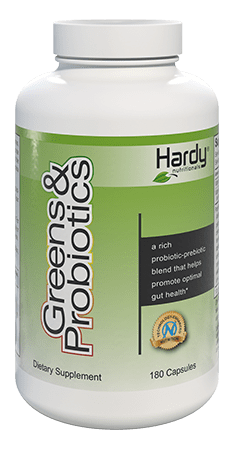
The gut-brain connection is increasingly recognized as crucial for mental health
Why Choose Hardy Nutritionals?
Hardy Nutritionals stands apart from other supplement companies through their uncompromising commitment to quality, innovation, and evidence-based formulations. Their unique approach incorporates several key advantages that set them apart in the crowded nutritional supplement market:
- Clinical Research Base: Hardy's formulations are backed by multiple independent clinical trials published in peer-reviewed medical journals, demonstrating real-world efficacy rather than theoretical benefits
- Proprietary Technology: Their NutraTek™ chelation complexes enhance mineral absorption and bioavailability, addressing the critical issue of nutrient delivery that many supplements overlook
- Comprehensive Formulations: Instead of single nutrients that may create imbalances, Hardy provides carefully balanced combinations of nutrients that work synergistically to support brain function
- Professional Quality: All products undergo rigorous quality testing and are manufactured in cGMP-certified facilities under pharmaceutical-grade standards
- Therapeutic Dosing: Hardy's formulations contain clinically effective amounts of nutrients rather than token amounts, recognizing that therapeutic effects require adequate dosing
- Bioactive Forms: Using the most bioavailable and metabolically active forms of nutrients ensures they can be properly utilized by the body
- Medical Professional Support: Hardy works closely with healthcare providers, offering educational resources and clinical support for implementing micronutrient therapy
The company's founder, David Hardy, has pioneered research in micronutrient therapy for mental health for over 20 years, collaborating with researchers at institutions worldwide to advance the scientific understanding of nutritional approaches to mental health. This dedication to research and innovation continues to drive the company's development of cutting-edge formulations.
Healthcare providers worldwide now recommend Hardy Nutritionals products for patients seeking comprehensive nutritional support for mental health and wellbeing. Their products represent a valuable tool in the integrative approach to mental health care, offering options that can complement conventional treatments or provide alternatives for those who haven't found success with traditional approaches alone.
Use code TAPROOT for 15% off your order!

Hardy Nutritionals' products are backed by clinical research and evidence-based formulations
Disclaimer
The information provided in this article is for educational purposes only and should not be considered medical advice. While supplements can be beneficial for supporting mental health, they should not replace professional mental health treatment. Always consult with a qualified healthcare provider before starting any supplement regimen, particularly if you have existing health conditions or are taking medications.
Individual results may vary, and what works for one person may not work for another. Some supplements may interact with medications or have side effects. We recommend working with a healthcare professional who can help determine which supplements may be appropriate for your specific situation.
We receive a small commission from purchases made through some of the links on this page. This helps support our educational content and does not affect the price you pay. Your support is appreciated.
To learn more about our integrated approach to mental health, visit our podcast on the depth psychology of consciousness:
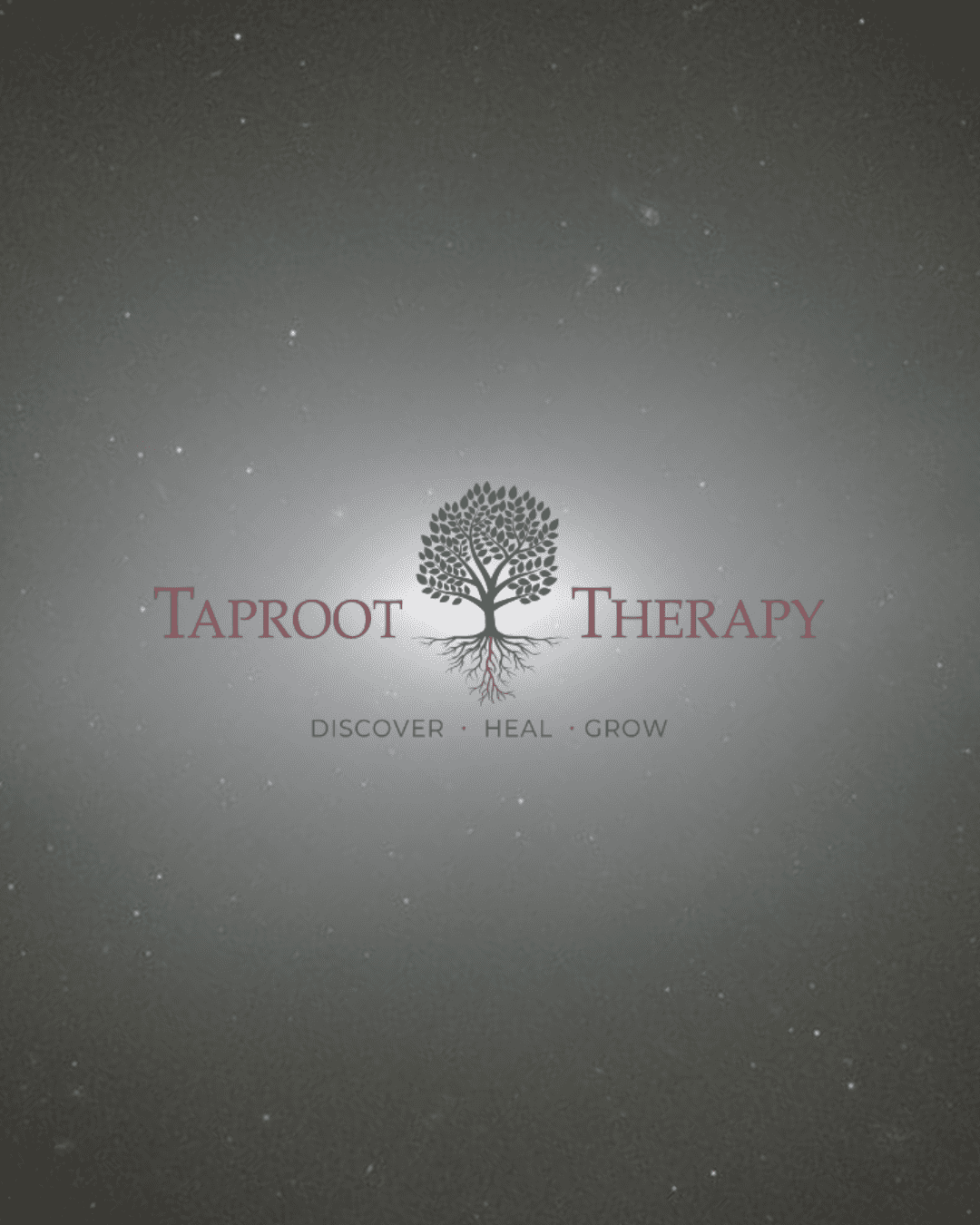
Addressing Conduct Disorders with Micronutrient Therapy:
Hardy Nutritionals' Daily Essential Nutrients Approach for Conduct Disorder Conduct disorders represent one of the most challenging behavioral conditions in child and adolescent psychiatry, often characterized by persistent patterns of antisocial behavior,...
Nutritional Support for Prader-Willi Syndrome
Exploring Hardy Nutritionals' Daily Essential Nutrients for Prader-Willi Syndrome Prader-Willi Syndrome (PWS) is a complex genetic disorder that presents numerous challenges for affected individuals and their caregivers. Among these challenges, nutrition management...
Nutritional Support for Brain Injury Recovery and TBI:
Emerging Evidence and Clinical Applications for Nutrition and TBI Traumatic brain injury (TBI) represents one of the most significant challenges in modern healthcare, with profound implications for cognitive function, emotional regulation, and overall quality of life....
Nutritional Approaches to Managing Aggression:
Emerging Research and Clinical Applications for Supplements for Aggression and Anger Aggression represents a complex behavioral pattern influenced by a multitude of neurobiological, psychological, and environmental factors. While pharmacological interventions remain...
Nutritional Approaches to Managing Antenatal and Postpartum Depression
Nutritional Approaches to Managing Pregnancy and Depression Antenatal depression affects approximately 7-20% of pregnant women worldwide, creating significant challenges for both maternal and fetal health. While conventional treatments remain essential, growing...
Natural Approaches to Managing Hyperactivity:
Explore evidence-based natural approaches to managing hyperactivity, including omega-3 fatty acids, zinc, magnesium, and herbal remedies like ginseng and pine bark extract. This comprehensive guide examines the research behind supplements, herbs, and complementary approaches for hyperactivity symptoms, offering insights into their effectiveness and safety considerations.
Natural Remedies for Insomnia:
The Science Behind Supplements and Herbs for Better Sleep Sleep is essential for our physical and mental well-being, yet insomnia affects millions of people worldwide. While conventional sleep medications can be effective, they often come with unwanted side effects...
Evidence-Based Natural Approaches to Phobia Treatment
The Science of Phobias and Evidence-Based Natural Approaches to Treatment Phobias represent one of the most common anxiety disorders worldwide, affecting approximately 10% of the population at some point in their lives. Unlike ordinary fears, phobias involve...
Understanding and Managing Oppositional Defiant Disorder:
The Role of Natural Supplements and Holistic Approaches Oppositional Defiant Disorder (ODD) represents one of the most challenging behavioral conditions affecting children and adolescents today. Characterized by persistent patterns of angry, irritable mood,...
The Natural Approach to Panic:
Explore evidence-based natural approaches to panic disorder, including nutritional supplements, herbal remedies, and mind-body practices that may complement conventional treatments and help manage panic attack symptoms.
Natural Approaches to Managing Depression:
A Comprehensive Guide to Supplements and Herbs Depression is a complex and widespread mental health condition affecting more than 17 million adults in the United States alone, with global numbers reaching hundreds of millions. While conventional treatments such as...
Natural Approaches to Managing OCD:
A Comprehensive Guide to Supplements and Herbs to OCD Obsessive-Compulsive Disorder (OCD) affects approximately 1 in 100 adults in the United States, significantly impacting daily functioning and quality of life. While traditional treatments like cognitive-behavioral...
Natural Approaches to Managing Anxiety Disorders:
A Comprehensive Guide to Supplements and Herbs Anxiety disorders are among the most common mental health conditions worldwide, affecting approximately 40 million adults in the United States alone. While conventional treatments like cognitive-behavioral therapy and...
Nutritional Approaches for Asperger’s Syndrome:
Current Evidence and Dietary Considerations for sperger's Syndrome Asperger's syndrome, now classified as part of autism spectrum disorder (ASD) in the DSM-5, is characterized by challenges in social interaction and communication, alongside restricted and repetitive...
Nutritional Approaches for Dysthymic Disorder:
Evidence-Based Supplements and Dietary Interventions for Dysthymic Disorder Dysthymic disorder, now classified as persistent depressive disorder (PDD) in the DSM-5, represents a chronic form of depression characterized by depressed mood that persists for at least two...
Adaptogenic Herbs and Nutritional Approaches for Stress Management:
Explore evidence-based approaches to stress management through adaptogenic herbs and essential nutrients. This comprehensive review examines ashwagandha, rhodiola, magnesium, B vitamins, and integrative strategies for building stress resilience.
Herbal Allies for Enhanced QEEG Outcomes:
Optimizing Brain Patterns for Neurofeedback Success Quantitative Electroencephalography (QEEG) and neurofeedback have emerged as powerful tools for assessing and optimizing brain function. By mapping electrical patterns across the brain and training individuals to...
Enhancing Neuroplasticity:
How Herbs and Supplements Can Boost Therapy and Neurofeedback Outcomes Neuroplasticity—the brain's remarkable ability to reorganize itself by forming new neural connections—underlies our capacity to learn, adapt, and recover from injury. This fascinating mechanism is...
Natural Approaches to Mental Wellness:
A Comprehensive Look at Supplements and Herbs In recent years, interest in complementary and alternative approaches to mental health has grown substantially. While conventional treatments remain the foundation of mental healthcare, many individuals are exploring...
The Potential of Broad-Spectrum Micronutrients for Managing Fibromyalgia Symptoms
Beyond Medication: How toTreat Fibromyagia Naturaly Fibromyalgia is a complex chronic condition affecting approximately 5% of the global population, characterized by widespread musculoskeletal pain, fatigue, sleep disturbances, cognitive difficulties ("fibro fog"),...
Managing POTS: Evidence-Based Approaches to Treatment
How to Manage POTS Naturally With Supplements Postural Orthostatic Tachycardia Syndrome (POTS) is a complex circulatory disorder that affects an estimated 1-3 million Americans. Characterized by an excessive heart rate increase when moving from lying to standing, POTS...
How to Know If You Have AuDHD: When ADHD and Autism Copresent
Understanding Autism and ADHD (AuDHD): The Overlooked Overlap and Potential of Micronutrient Treatment Introduction Autism spectrum disorder (ASD) and attention-deficit/hyperactivity disorder (ADHD) are two of the most common neurodevelopmental conditions, each with...
How to Naturally Treat Mental Health Conditions
Supplements and Vitamins for Mental Health Introduction to Nutritional Psychiatry Nutritional psychiatry is an emerging field that examines the relationship between diet, nutrient intake, and mental health. Research in this area has grown exponentially in recent...
Nutrition for Bipolar Disorder
Bipolar disorder is a complex mental health condition characterized by dramatic mood swings, oscillating between periods of intense elation or irritability (mania or hypomania) and profound sadness or hopelessness (depression). Managing this condition effectively...
Nutritional Approaches to Reduce Anxiety
Anxiety represents one of the most prevalent mental health challenges today, affecting millions worldwide. Whether manifesting as generalized anxiety, panic attacks, social anxiety, or other anxiety disorders, these conditions can significantly impact quality of life....























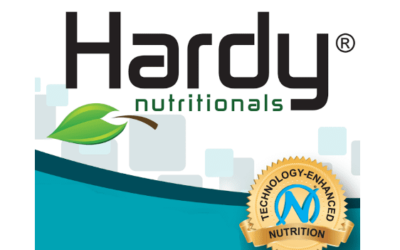
0 Comments